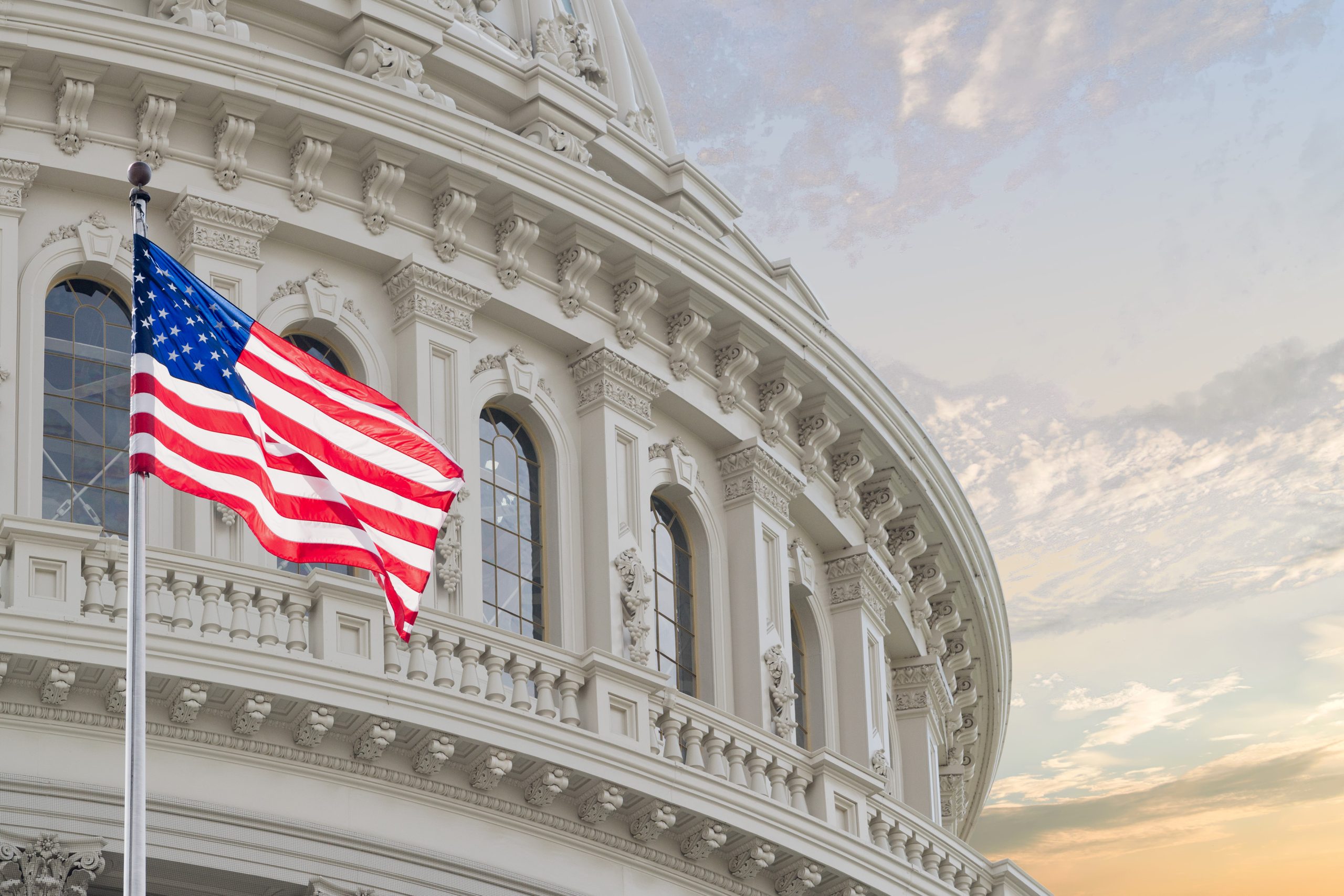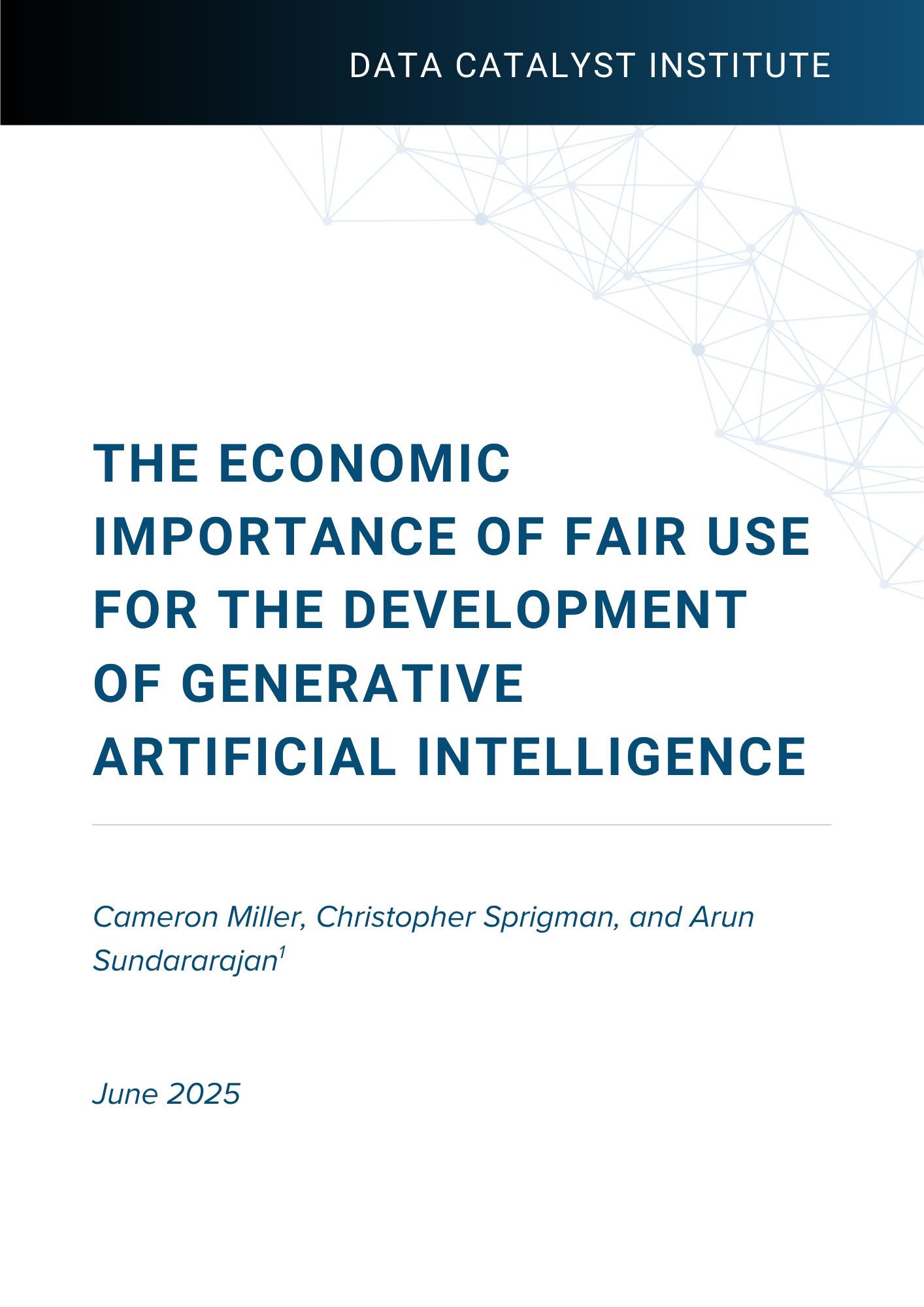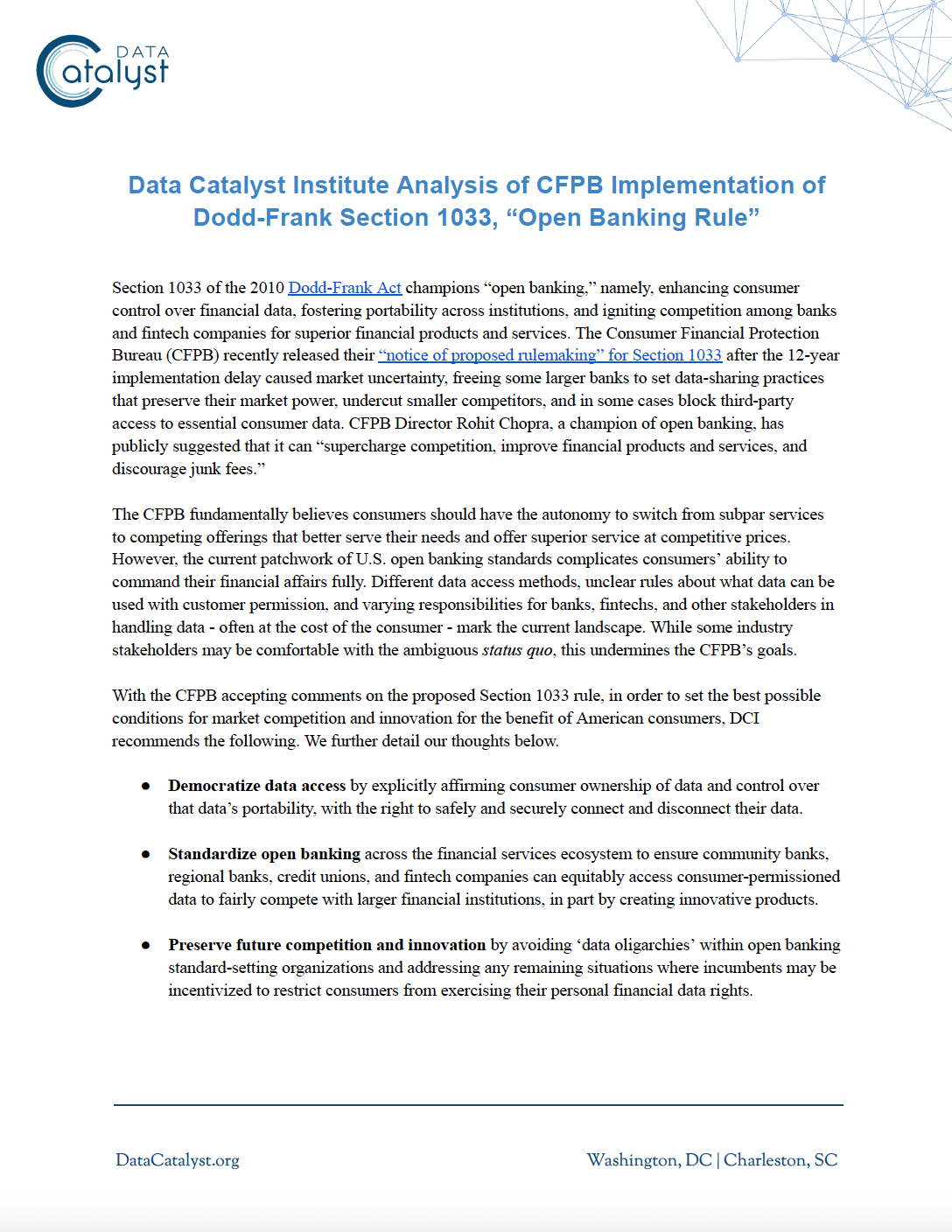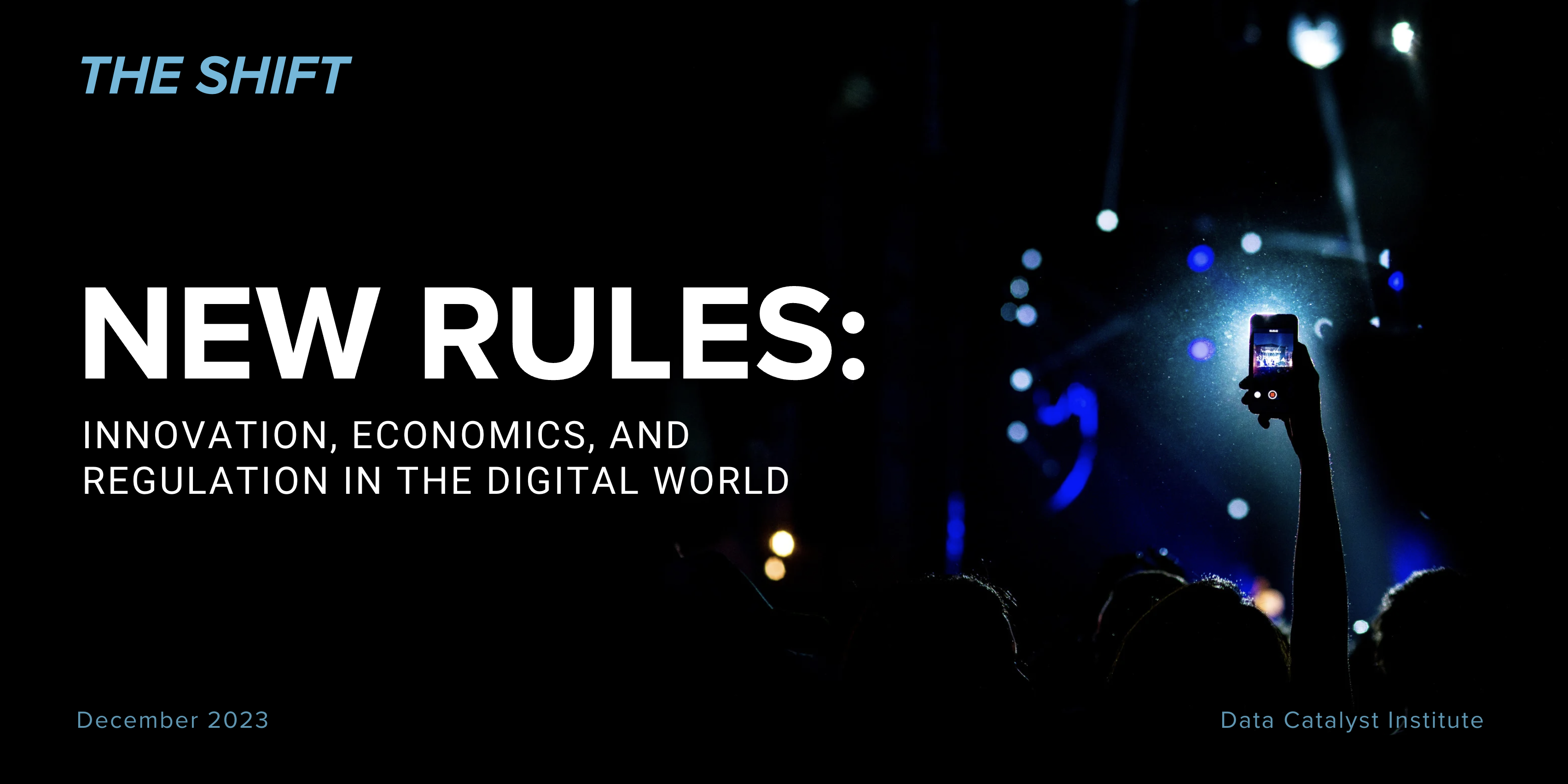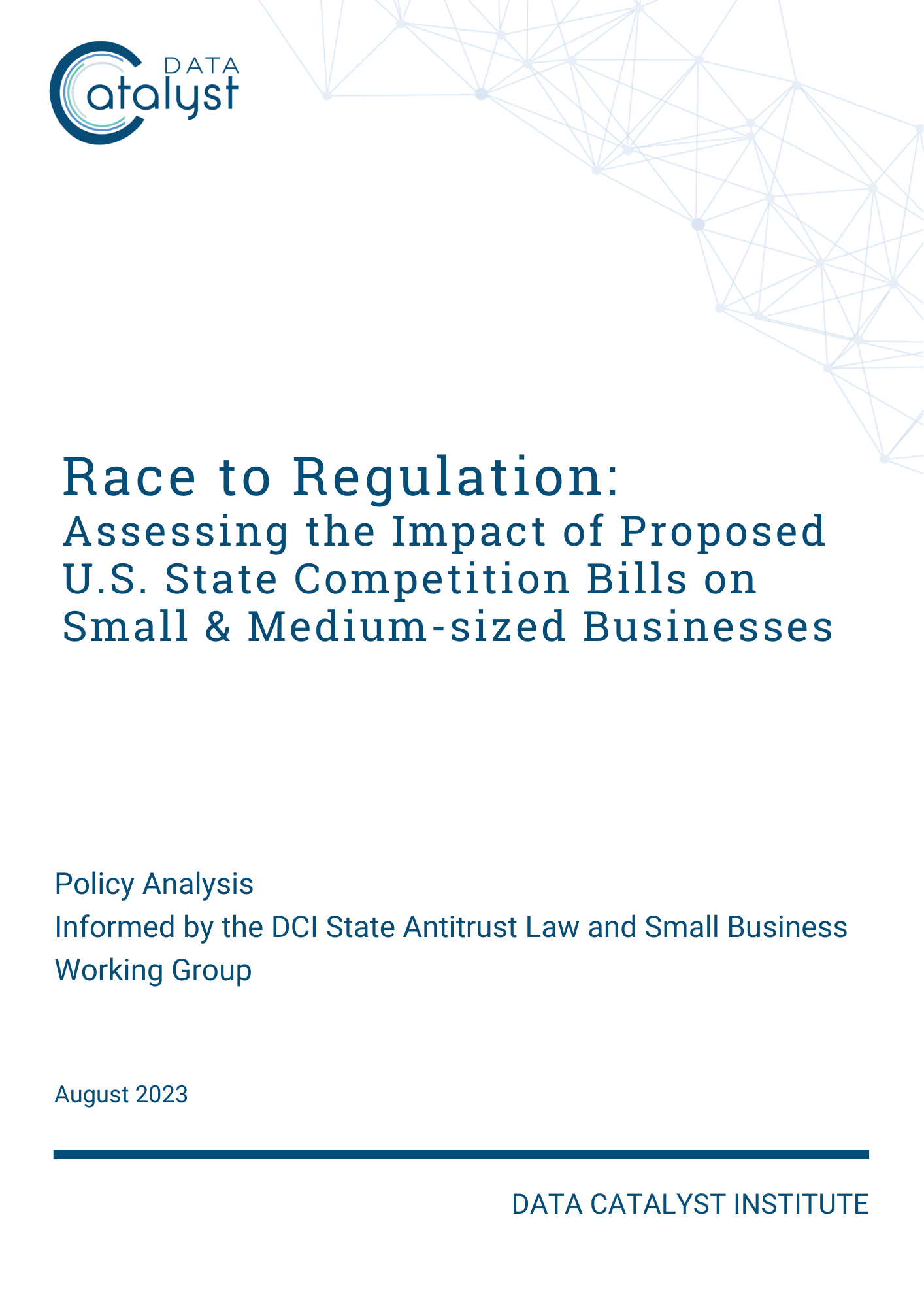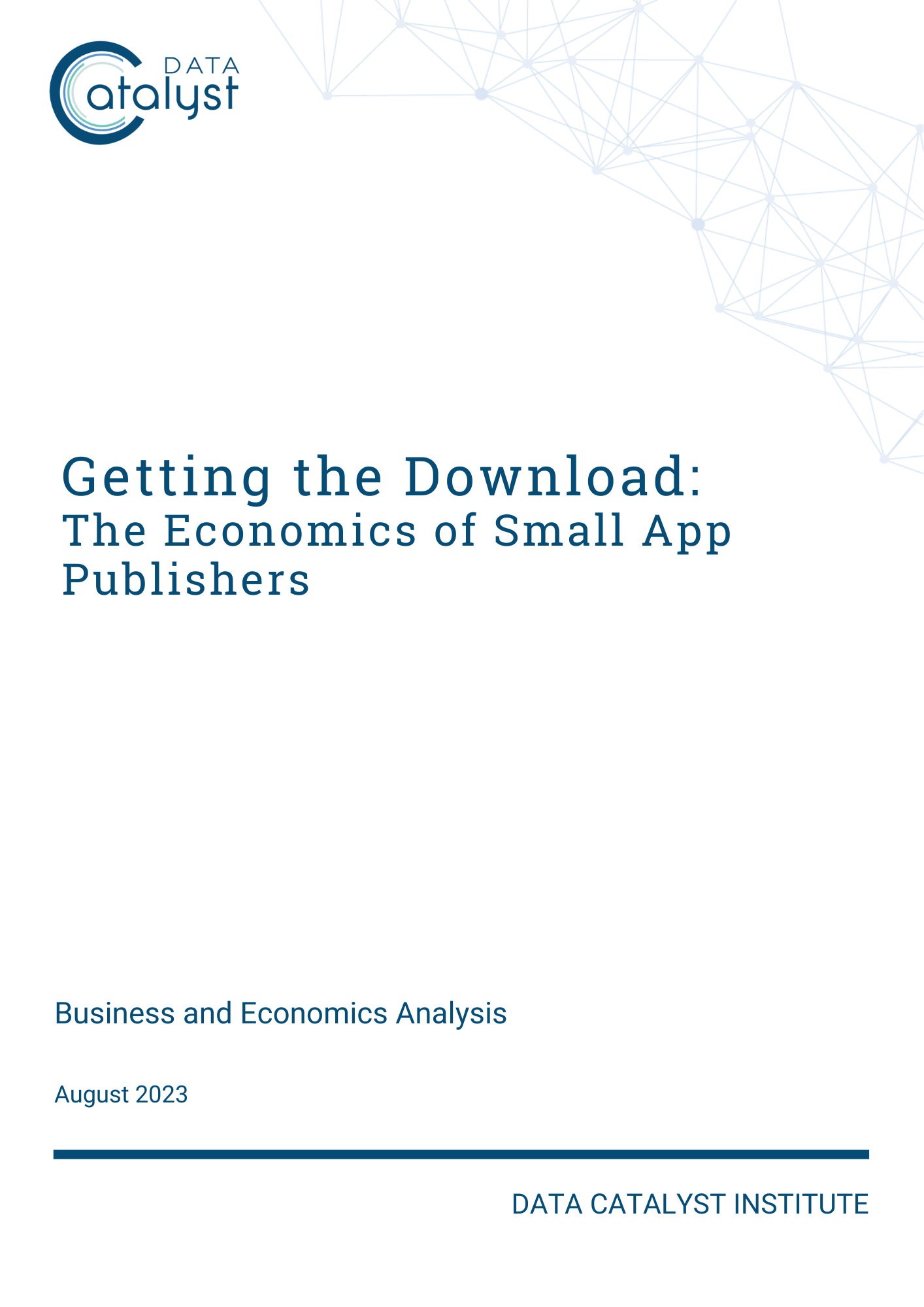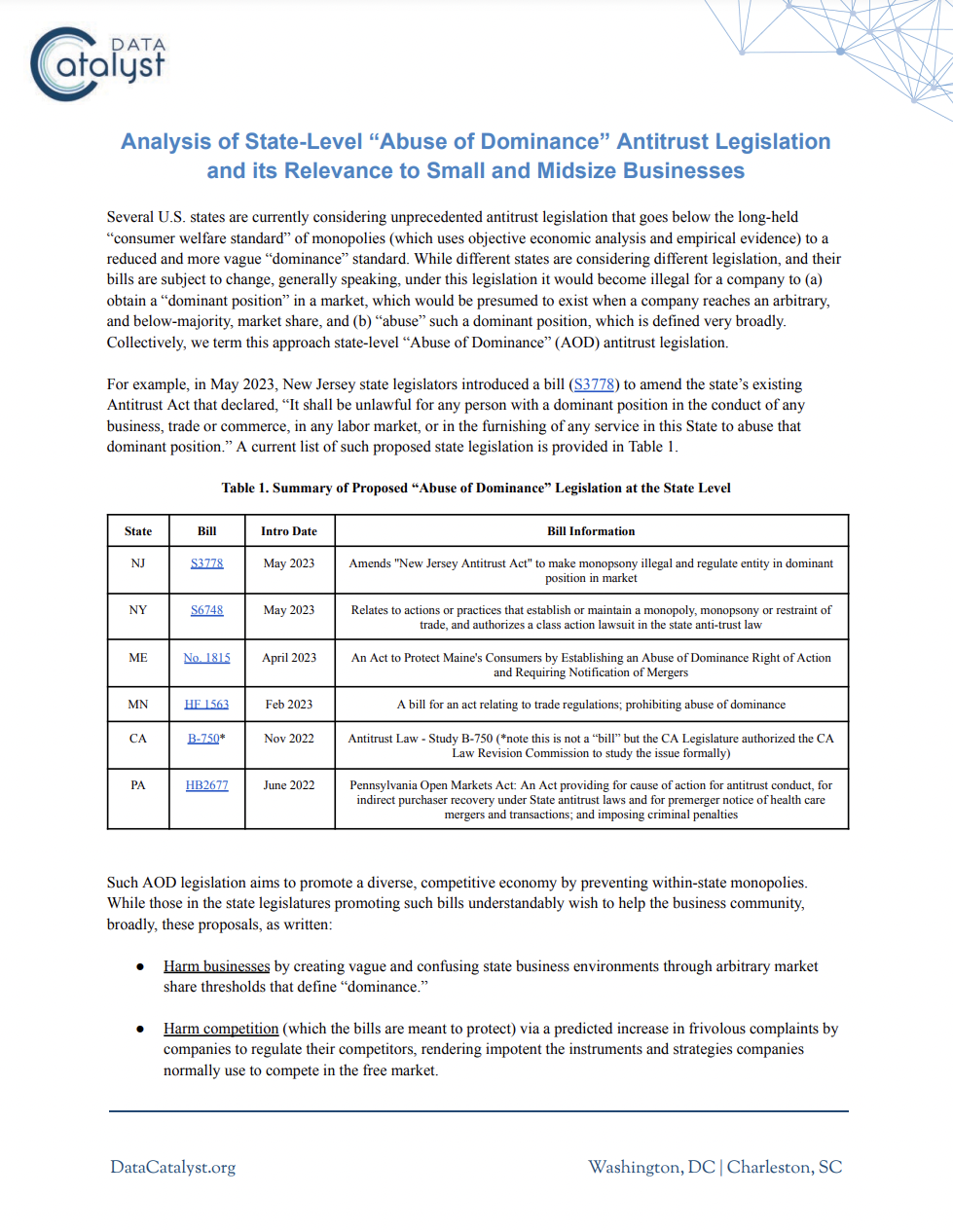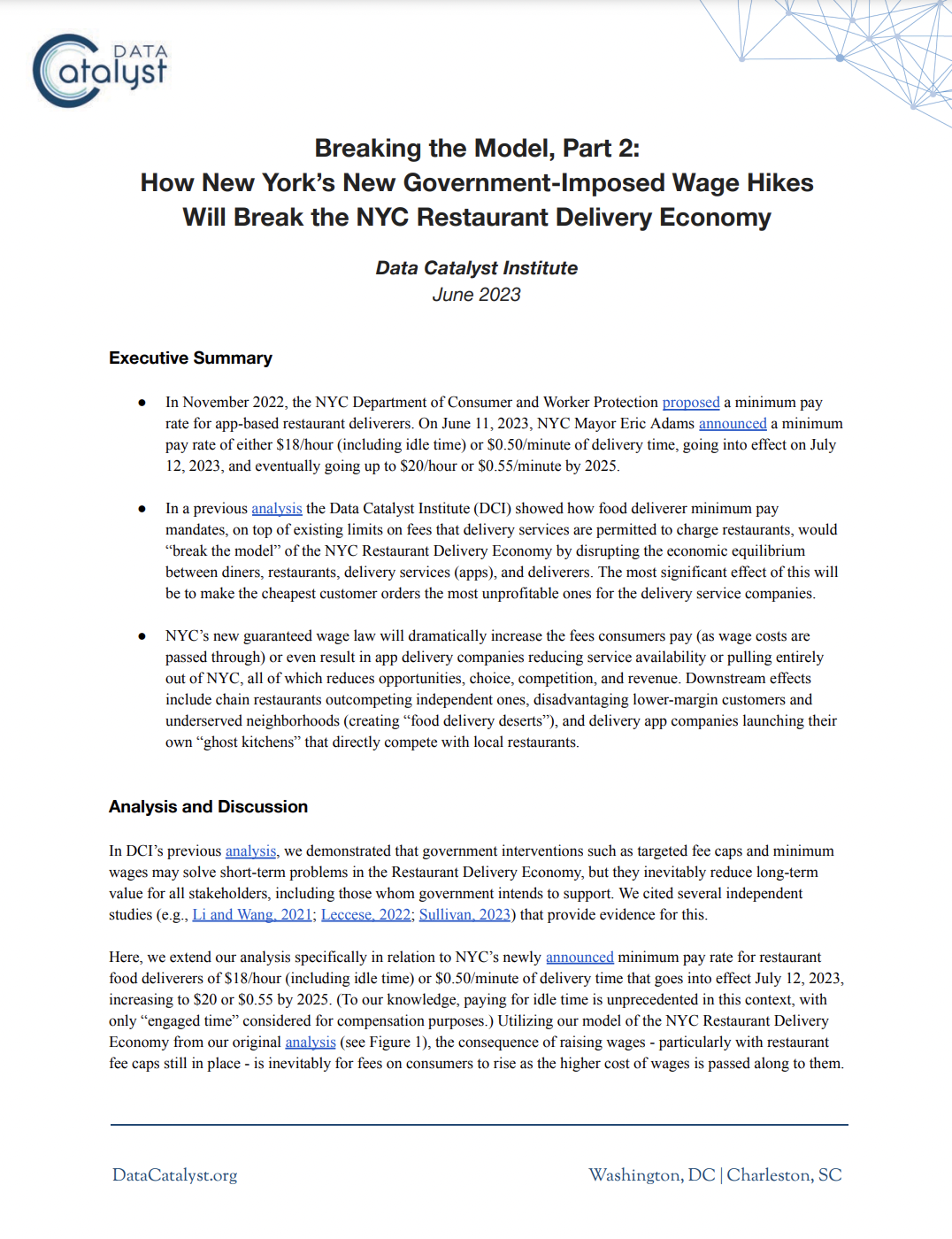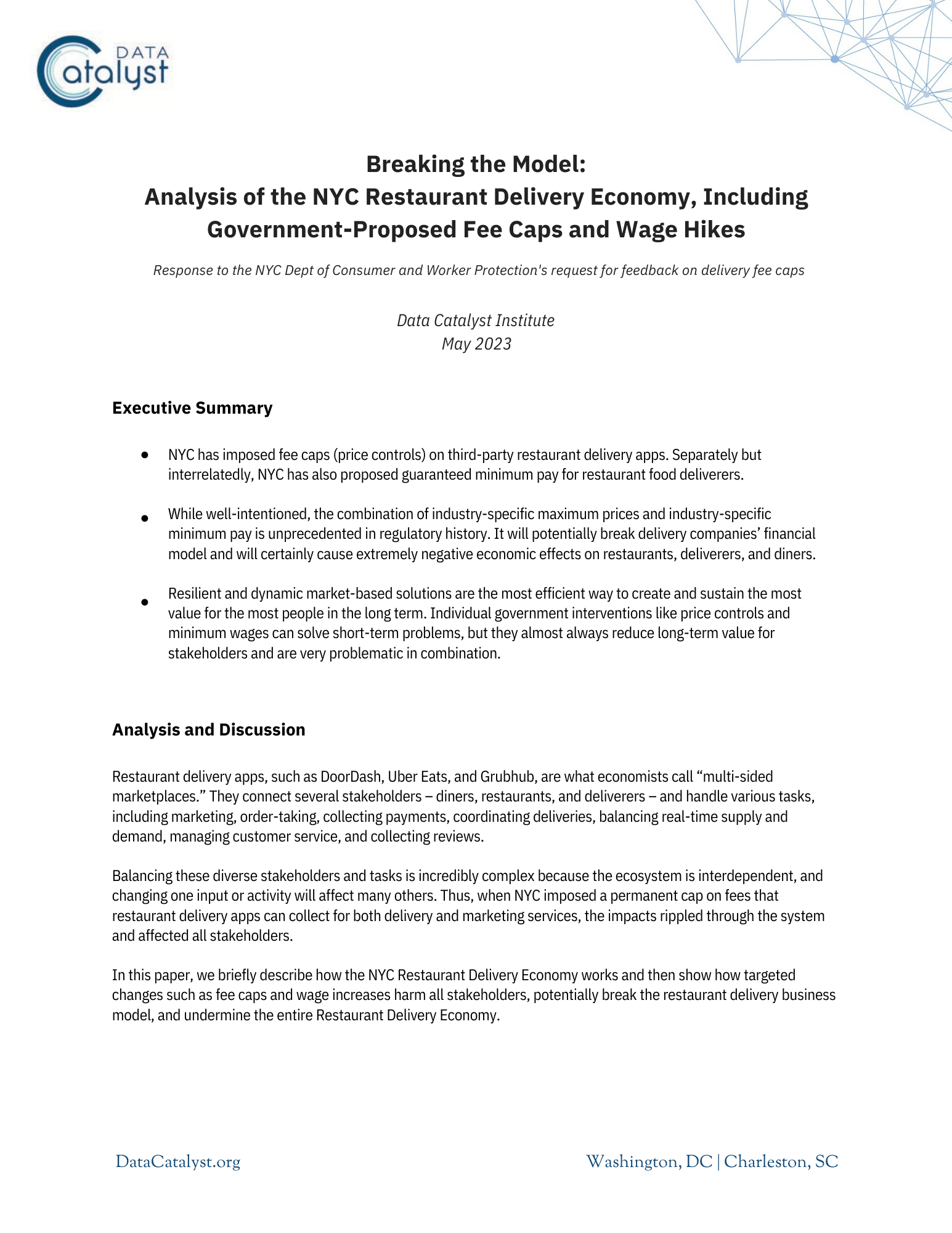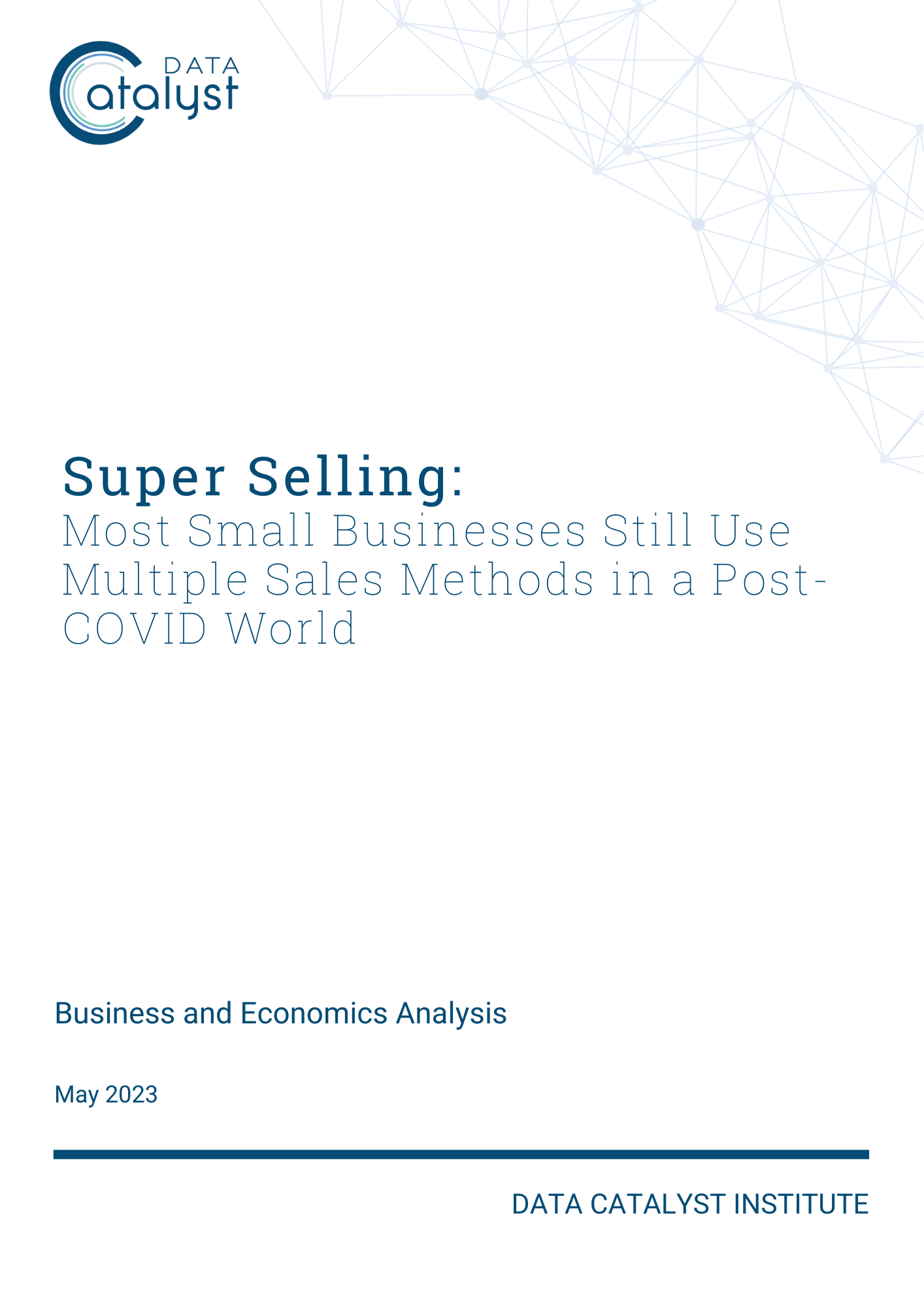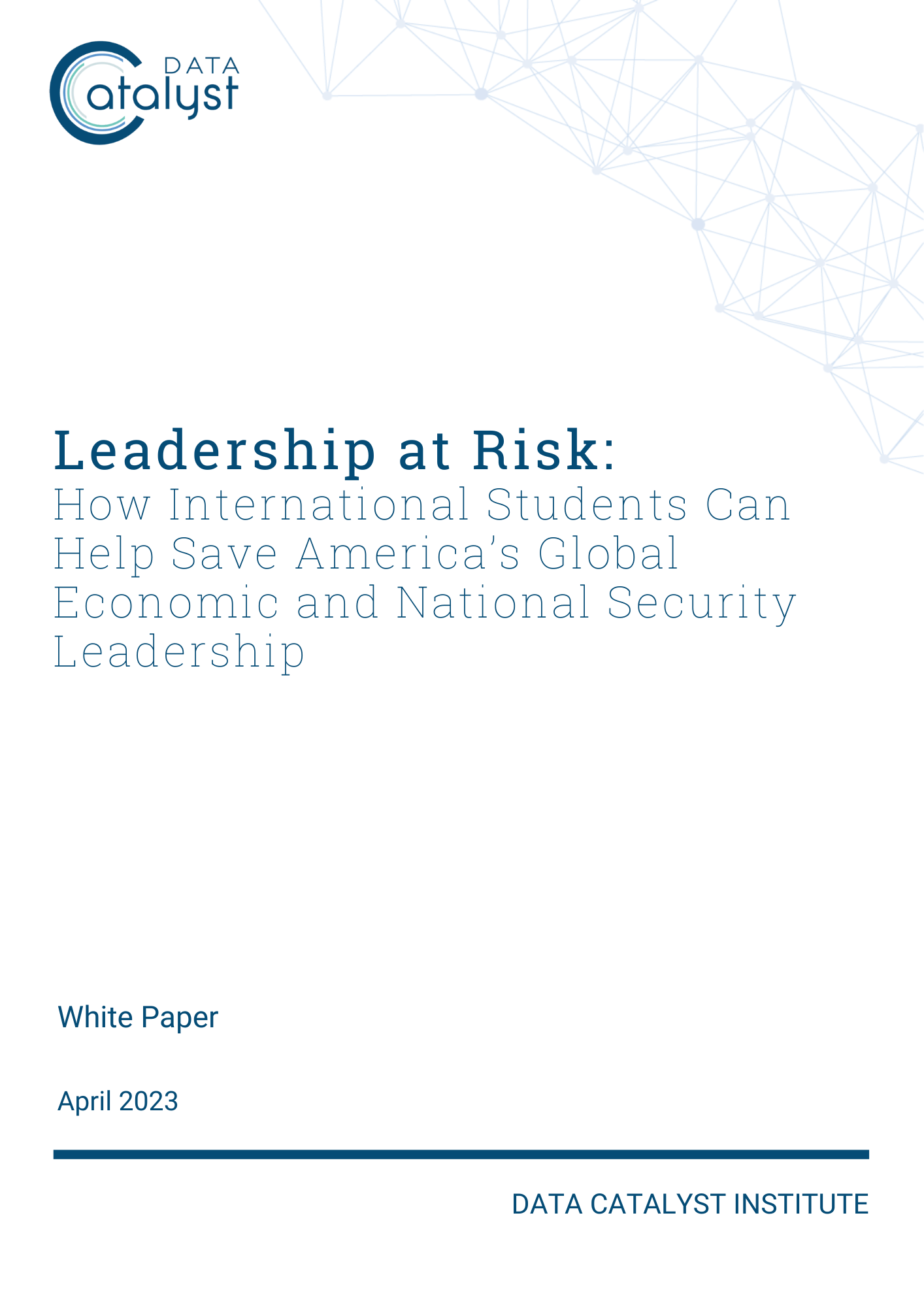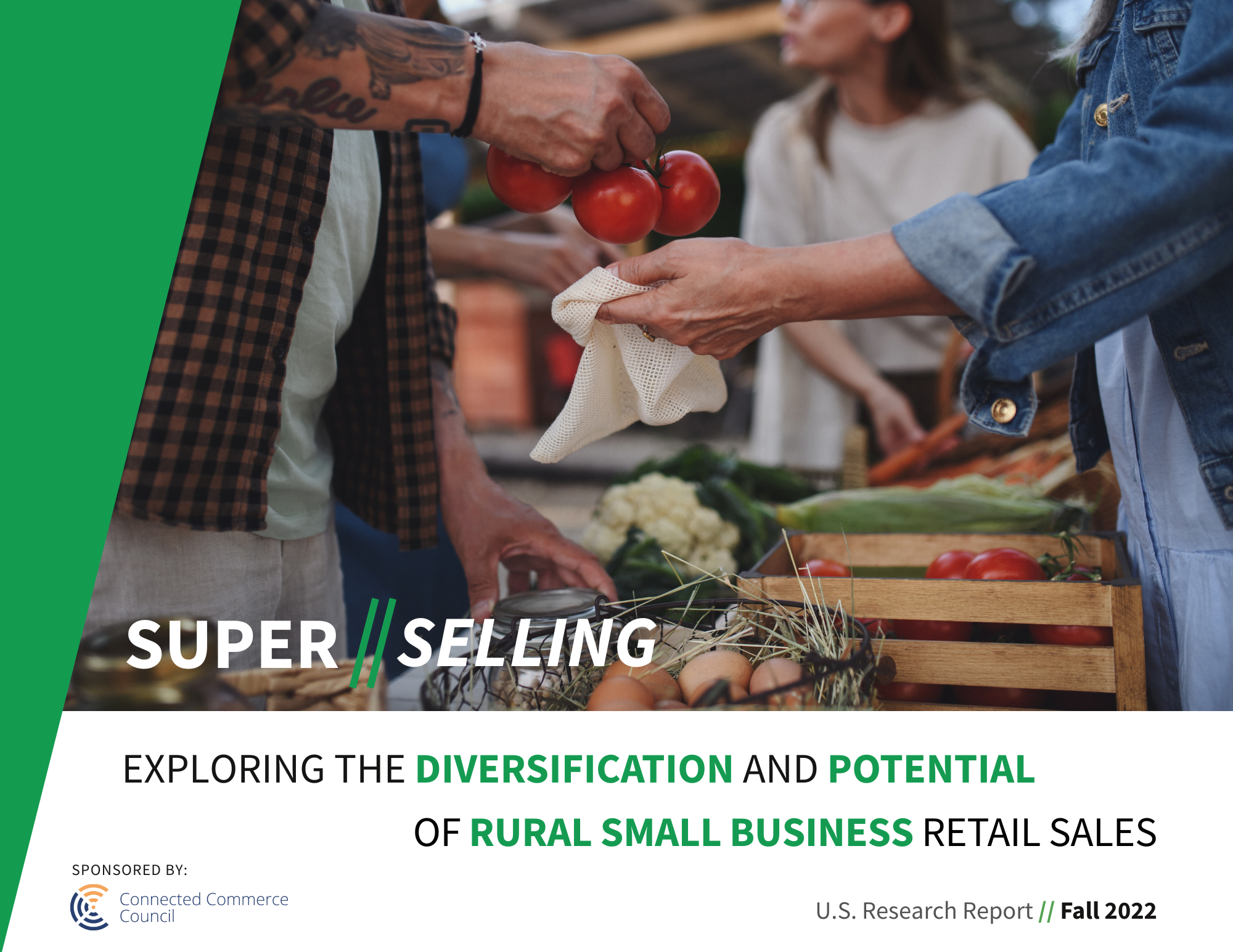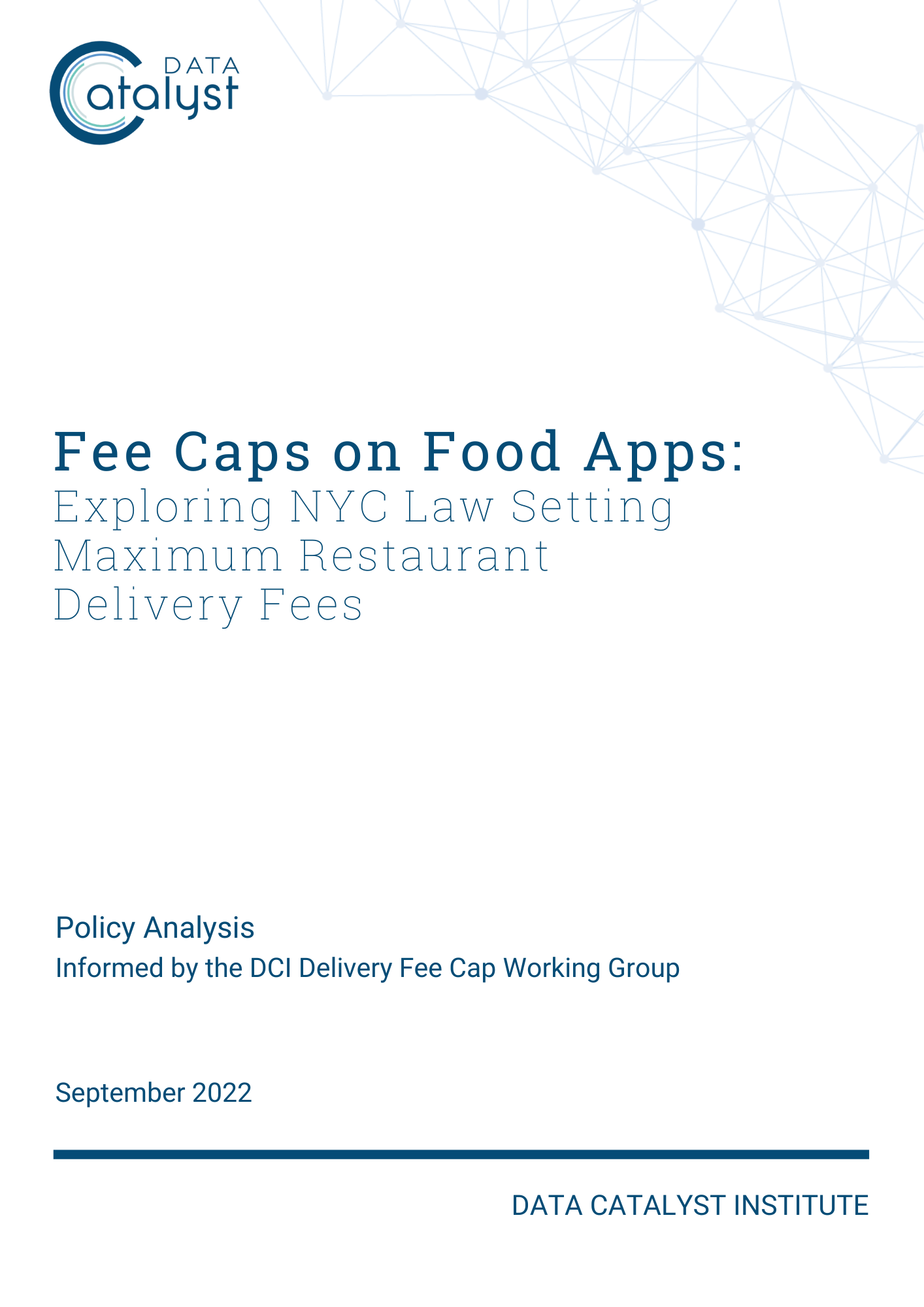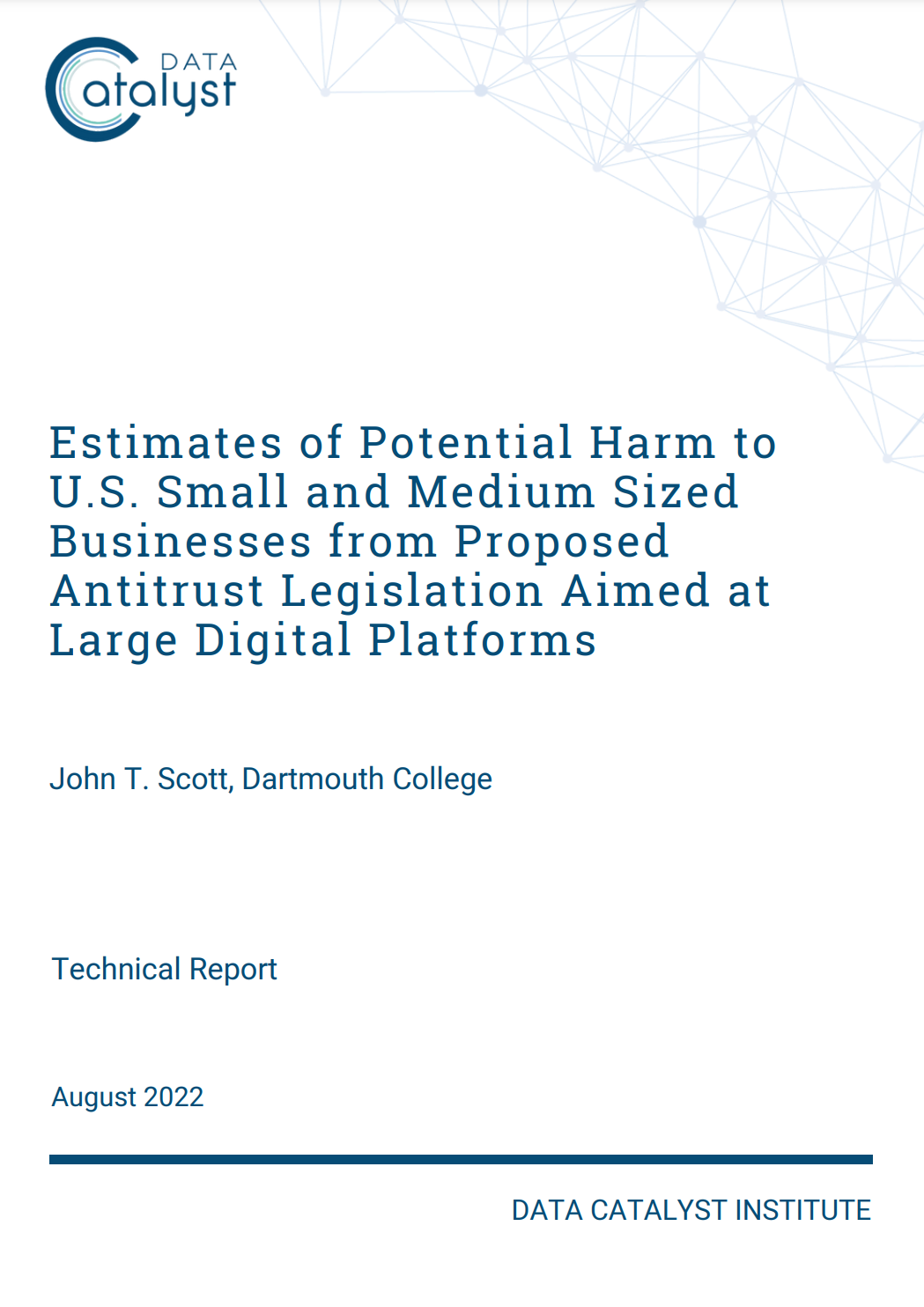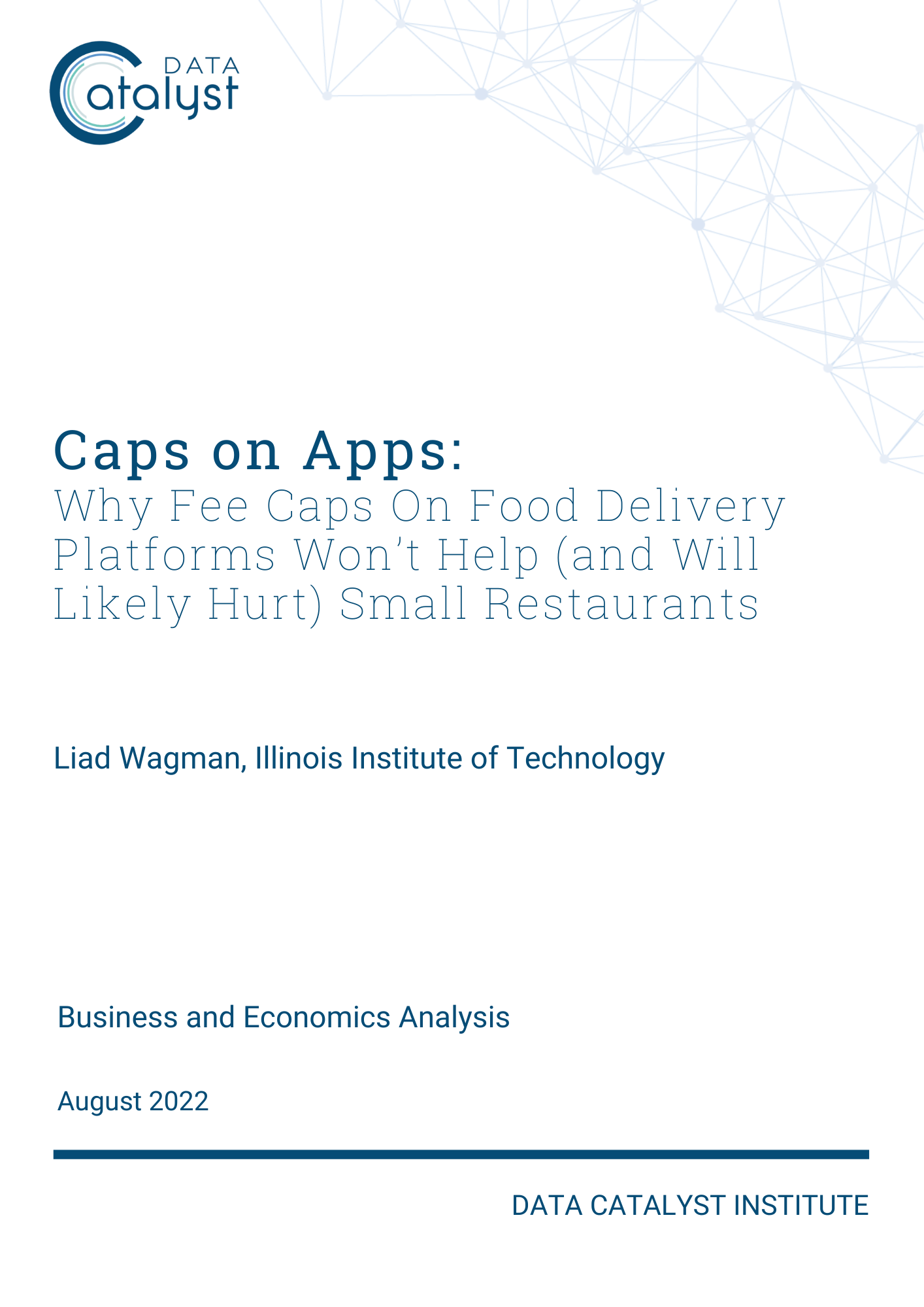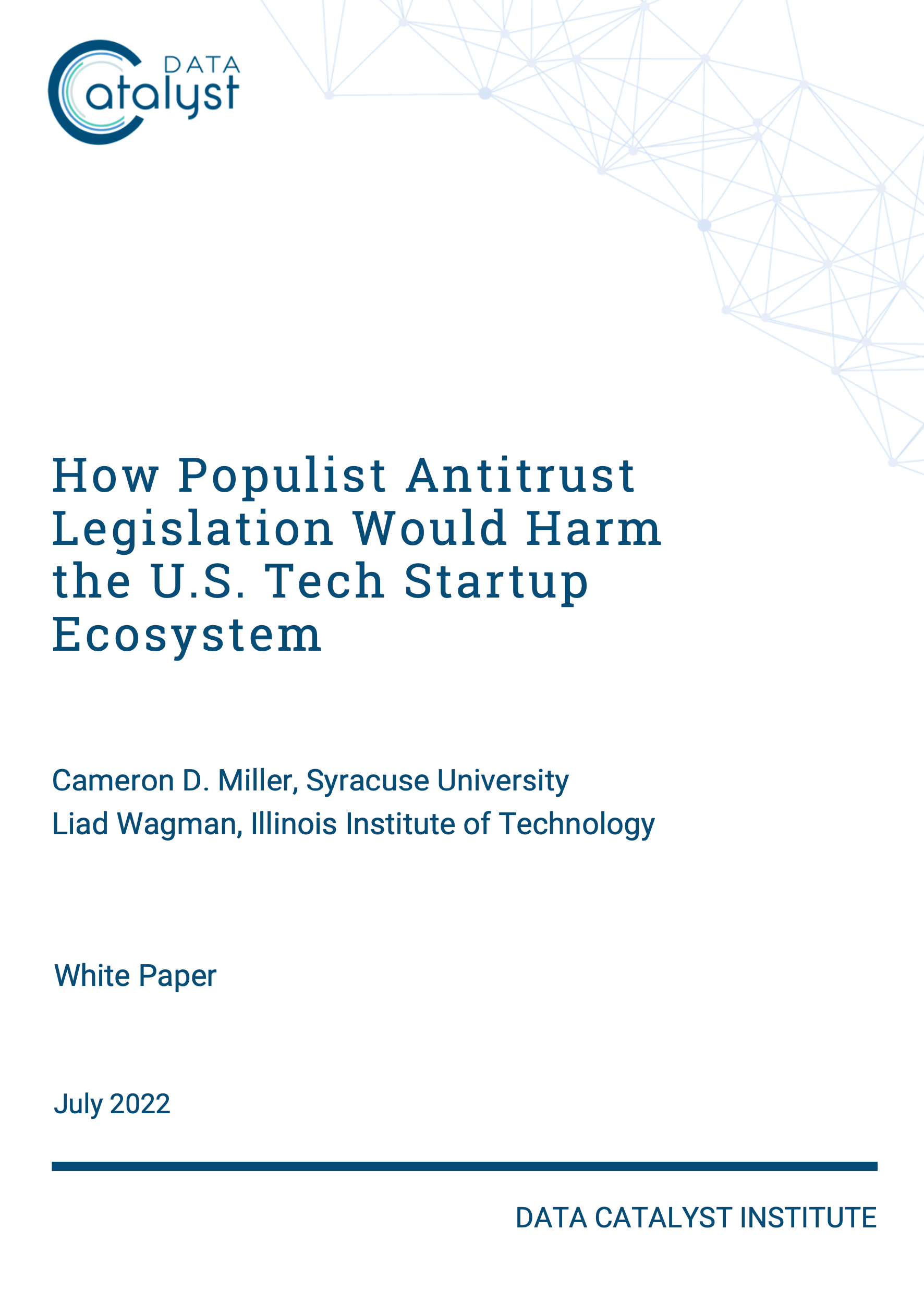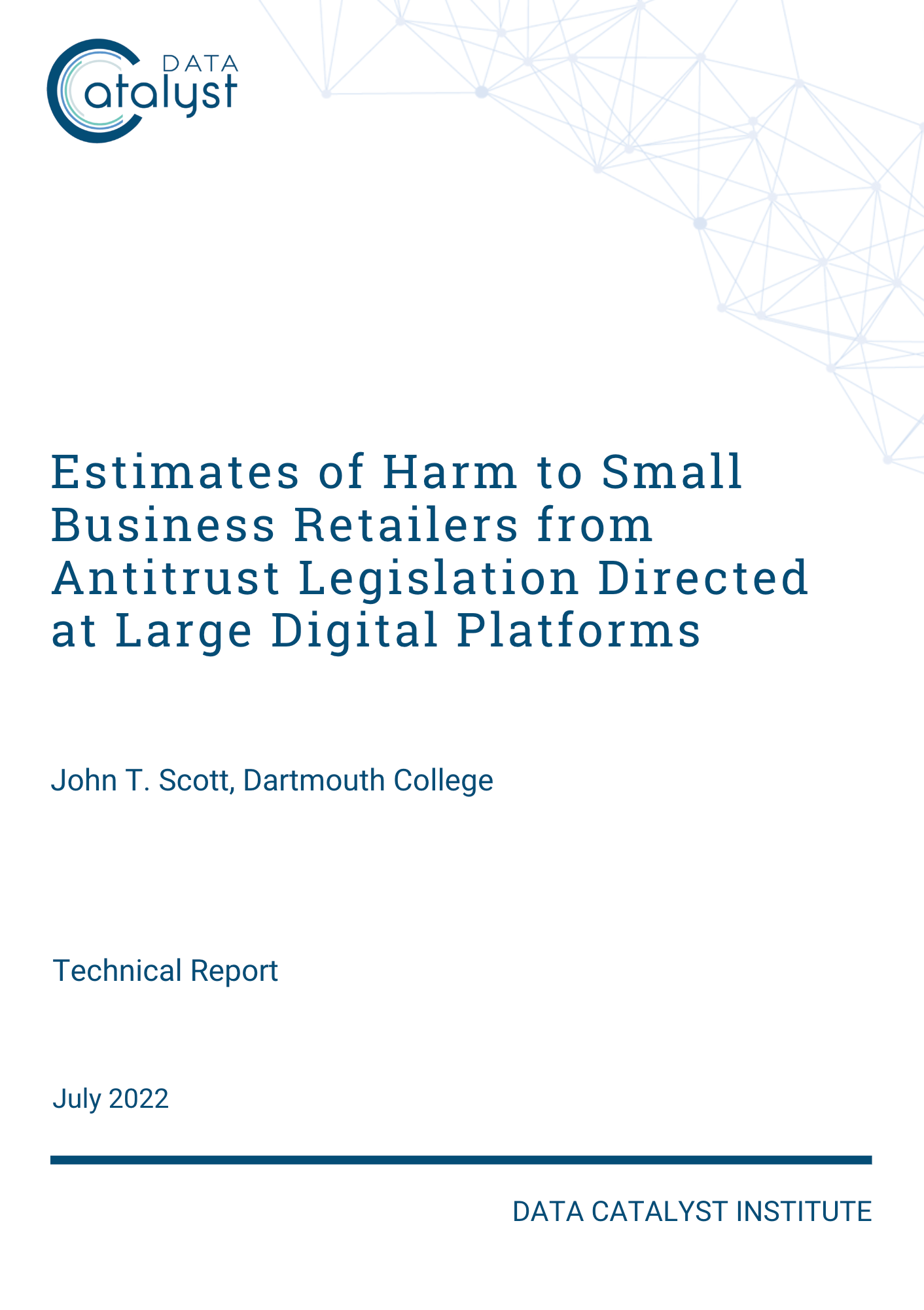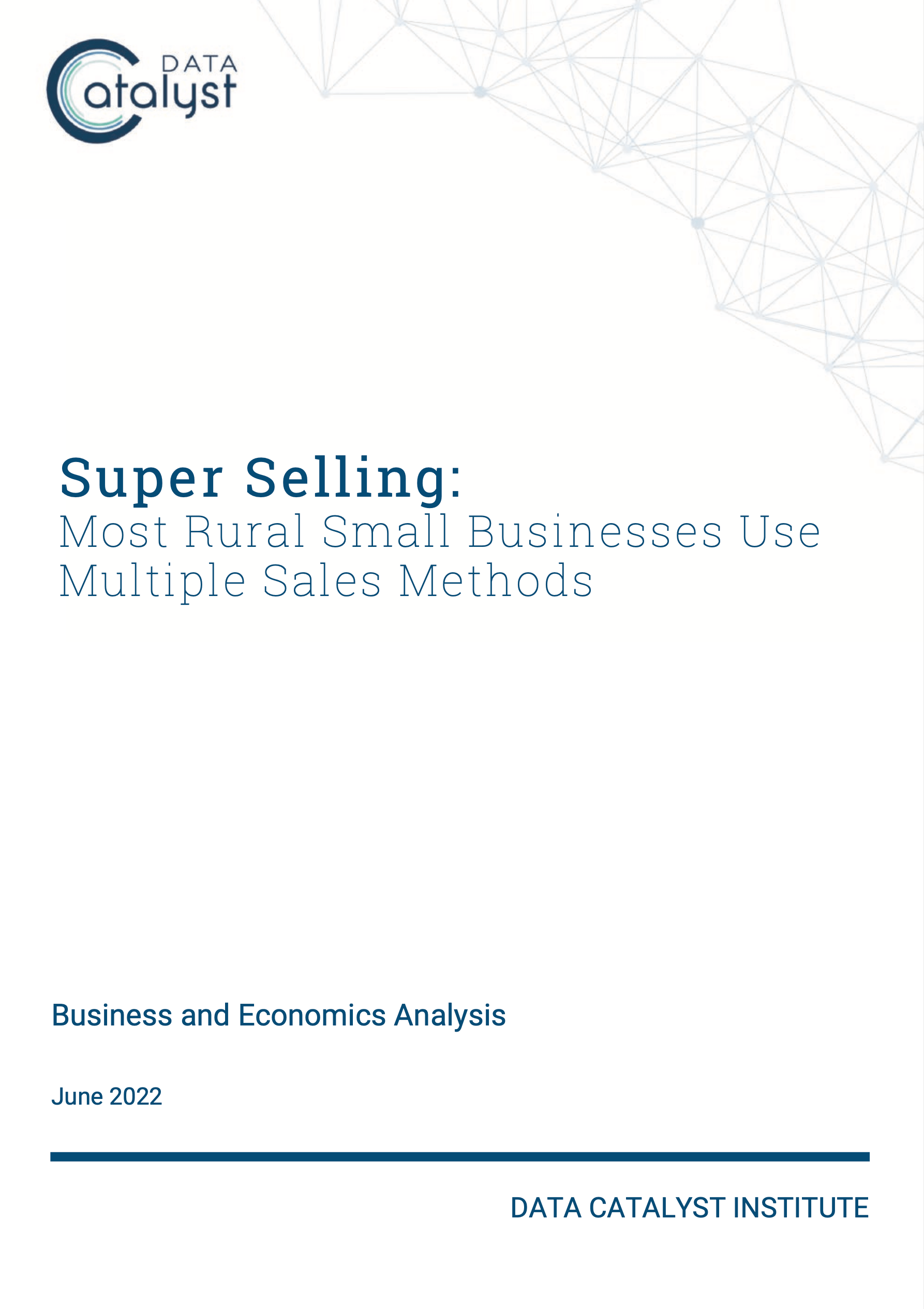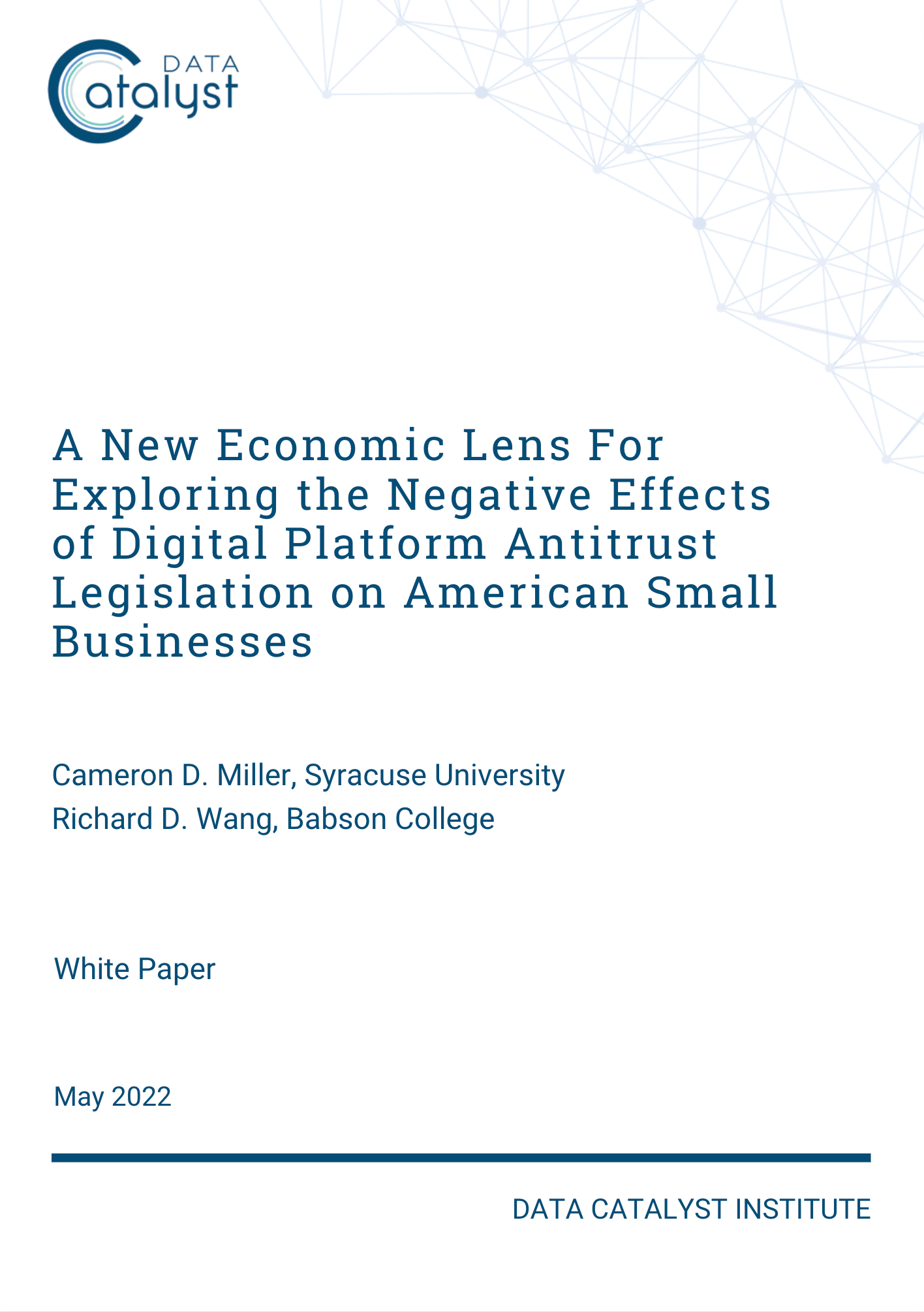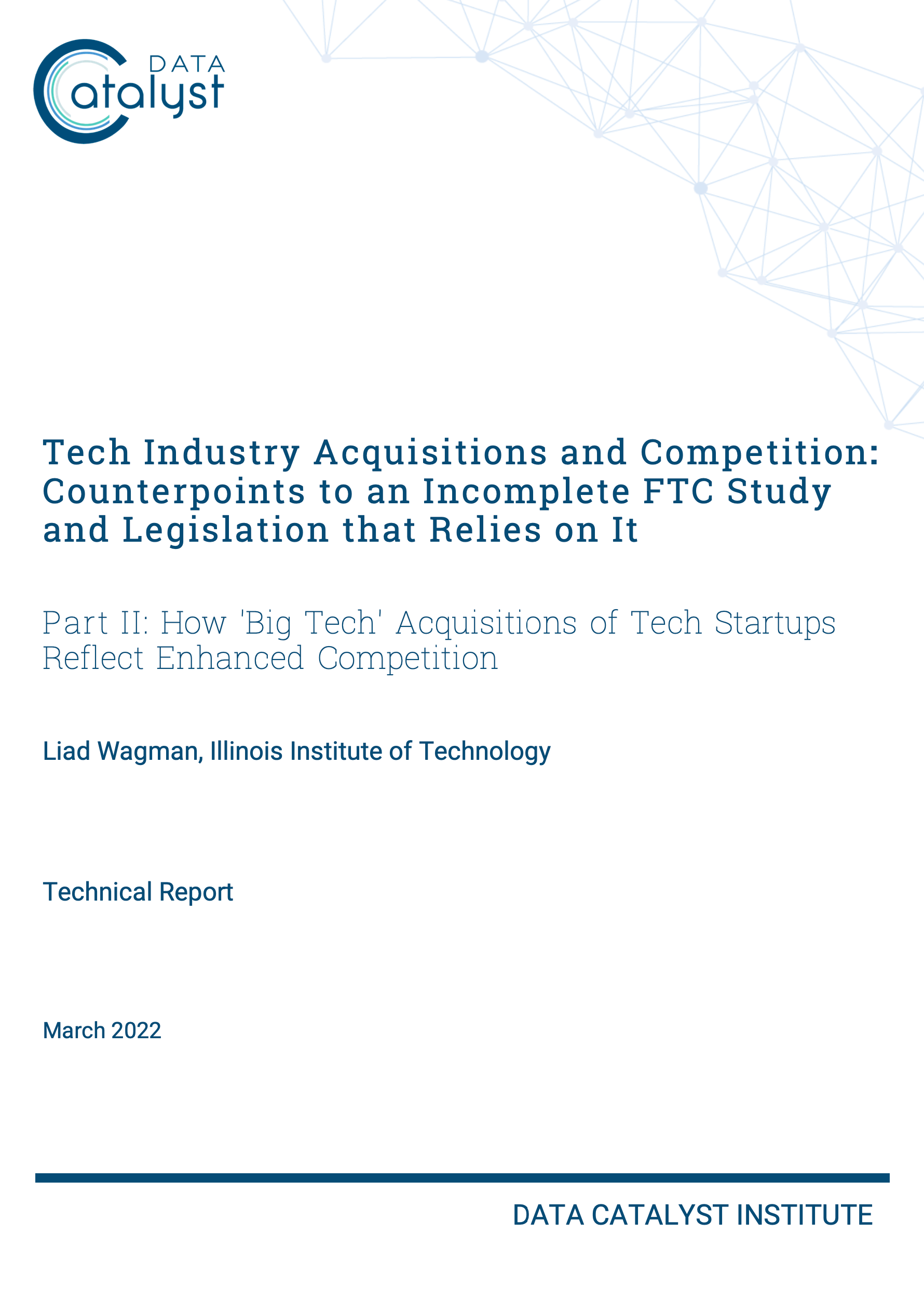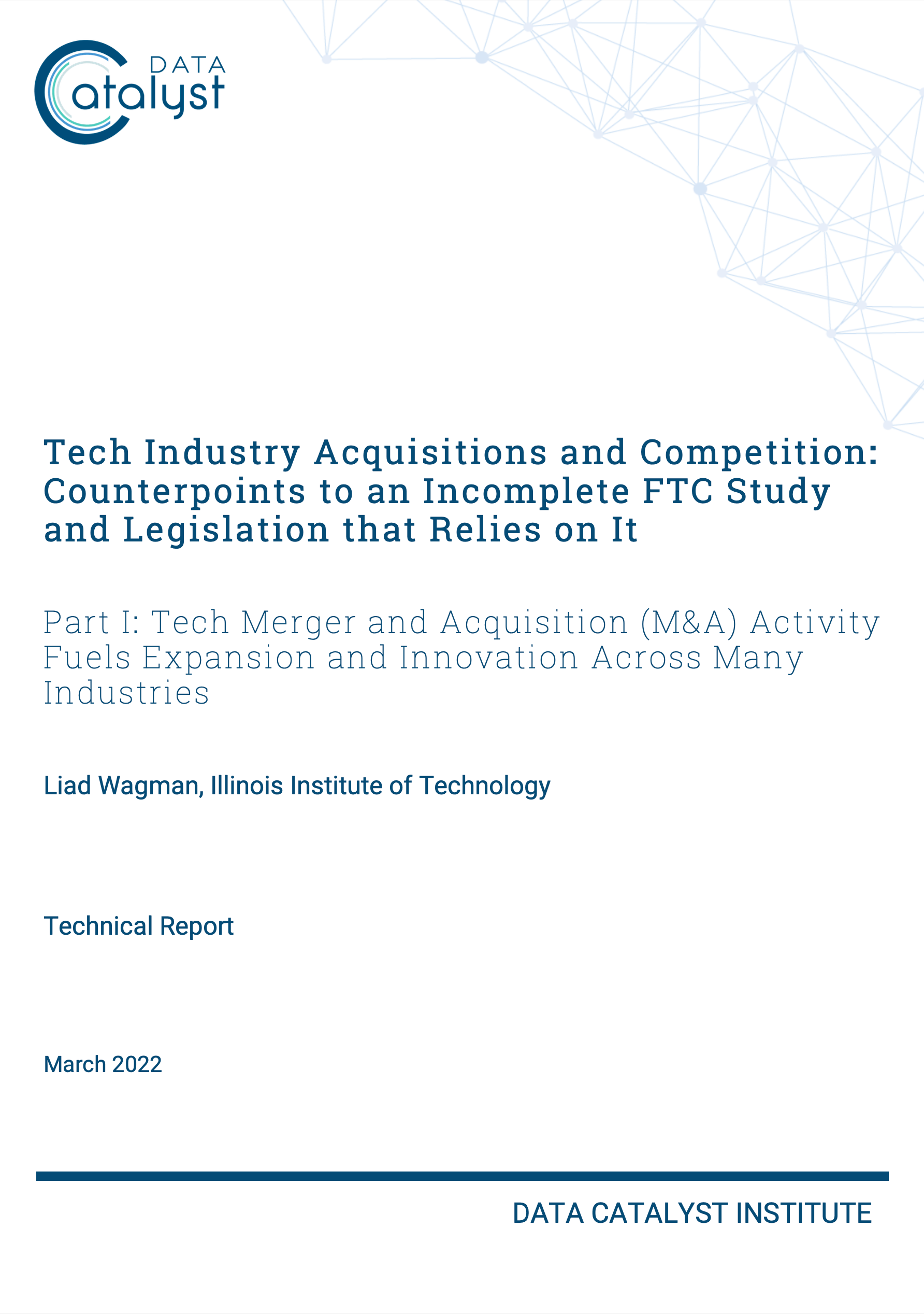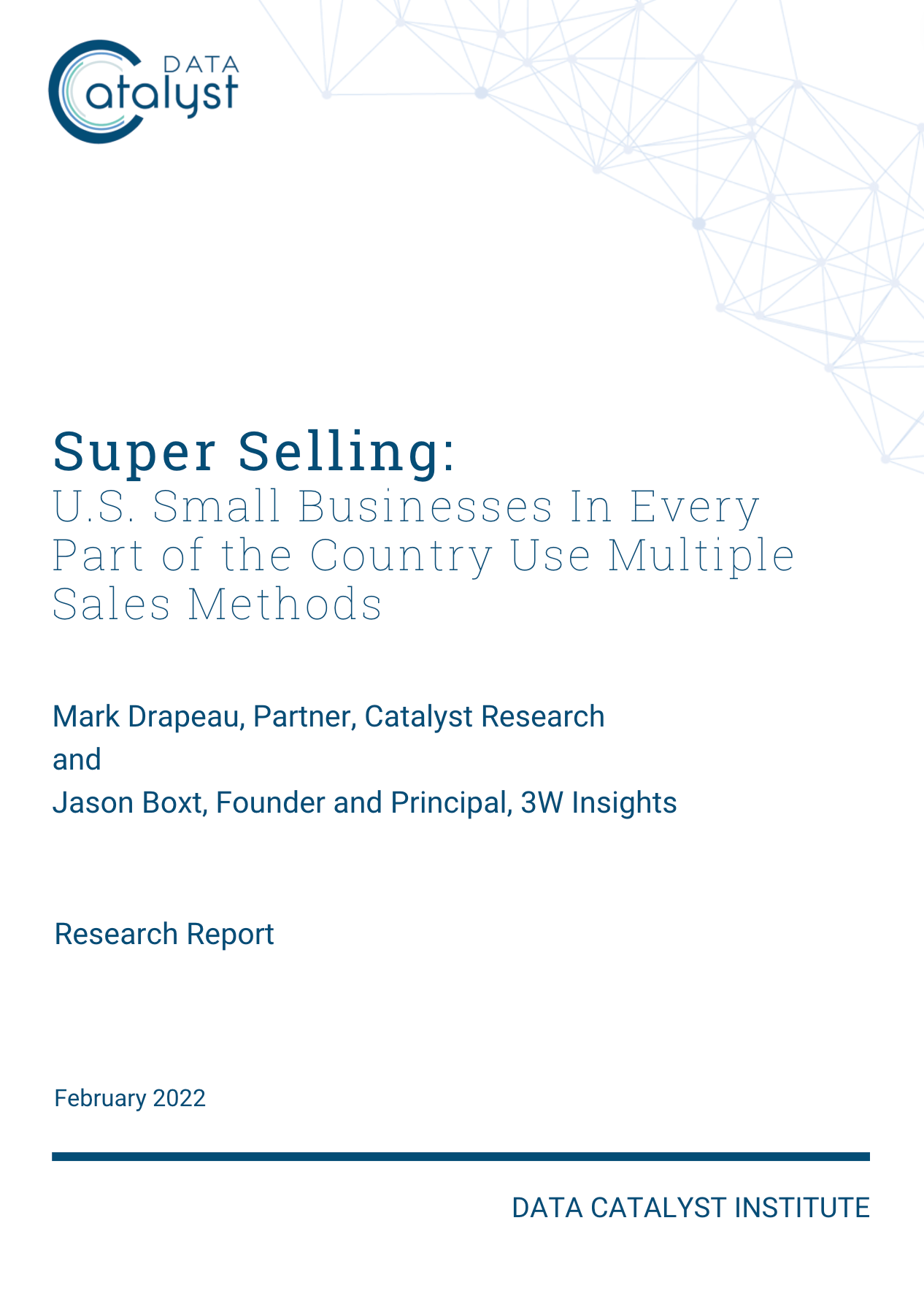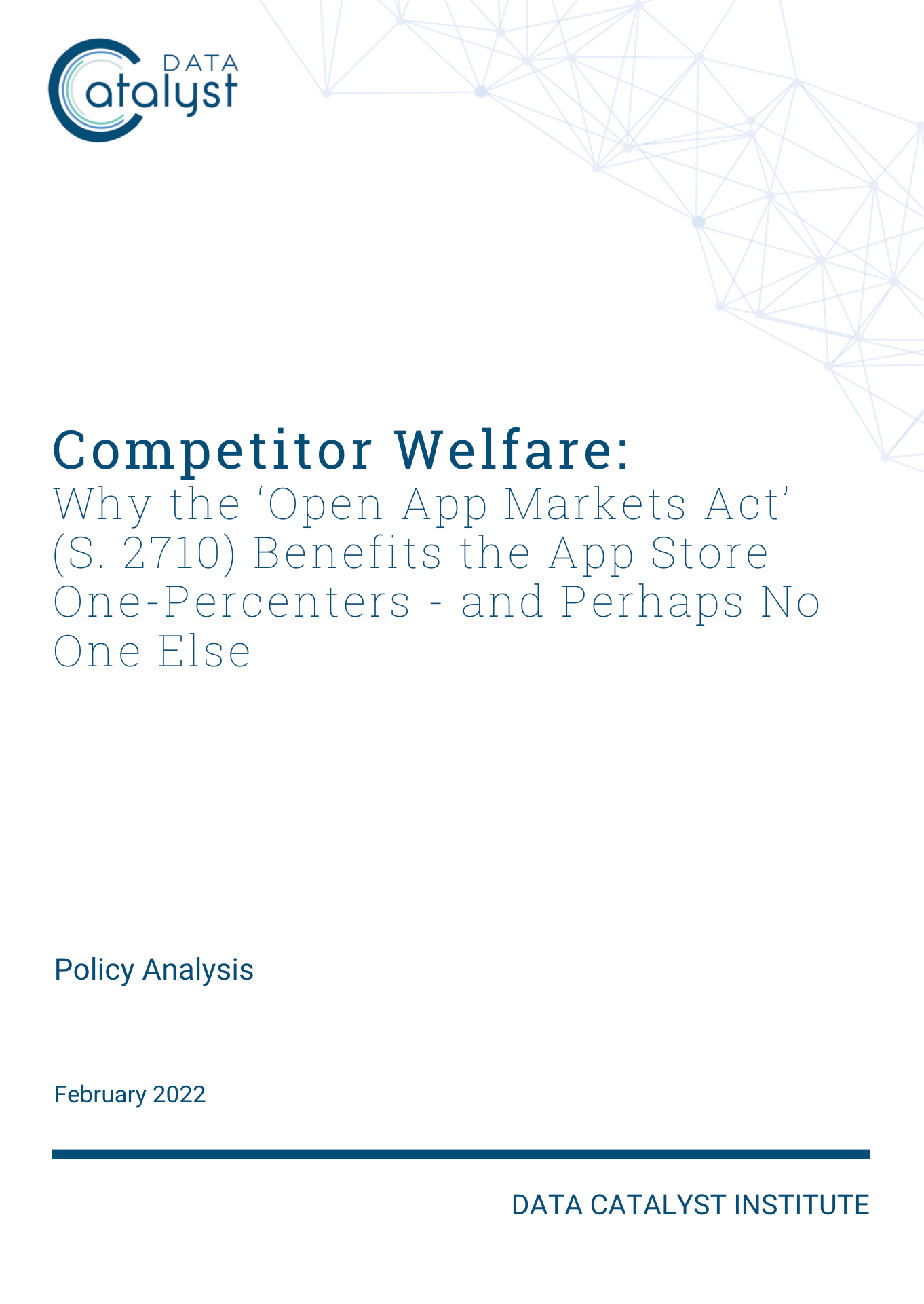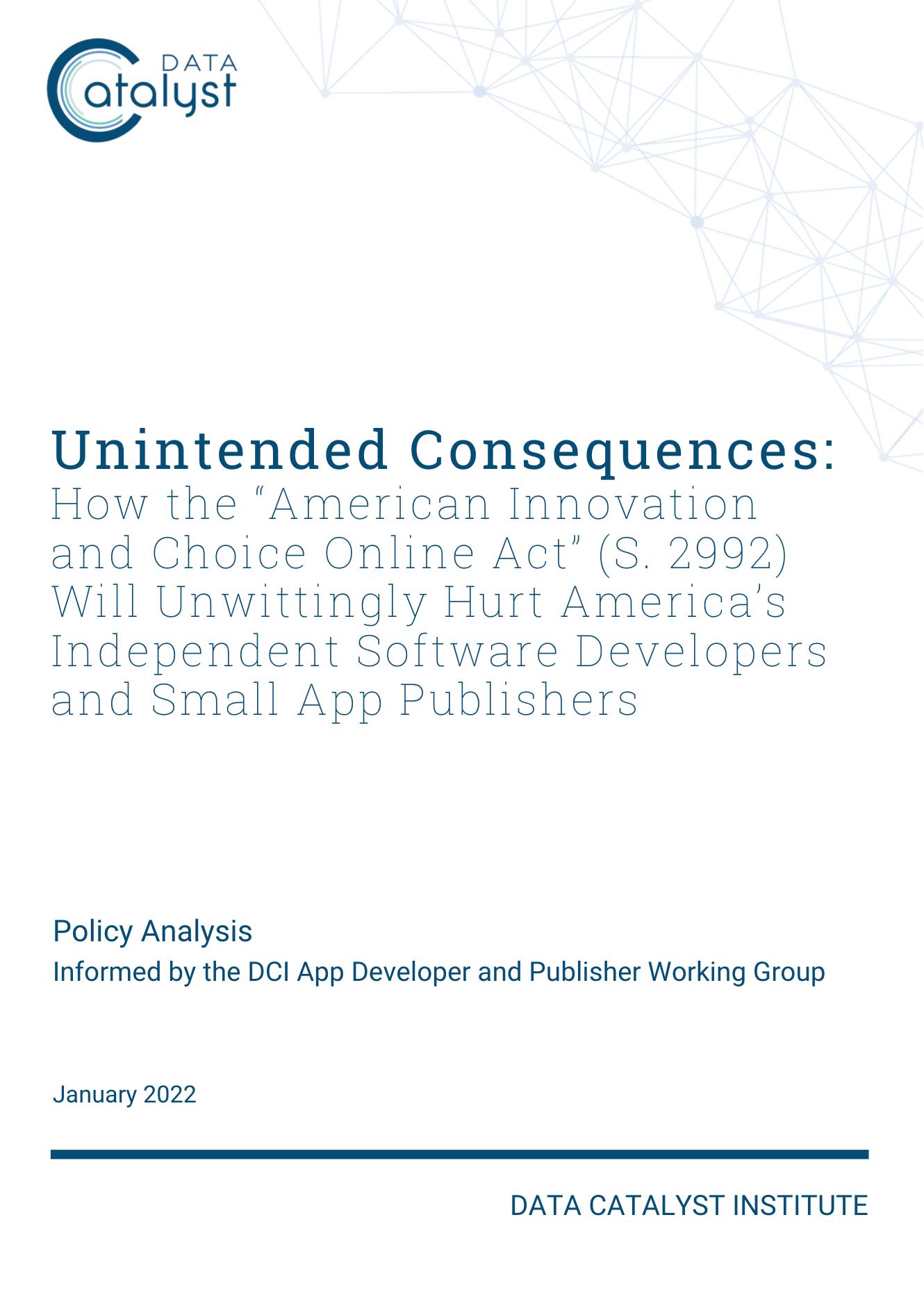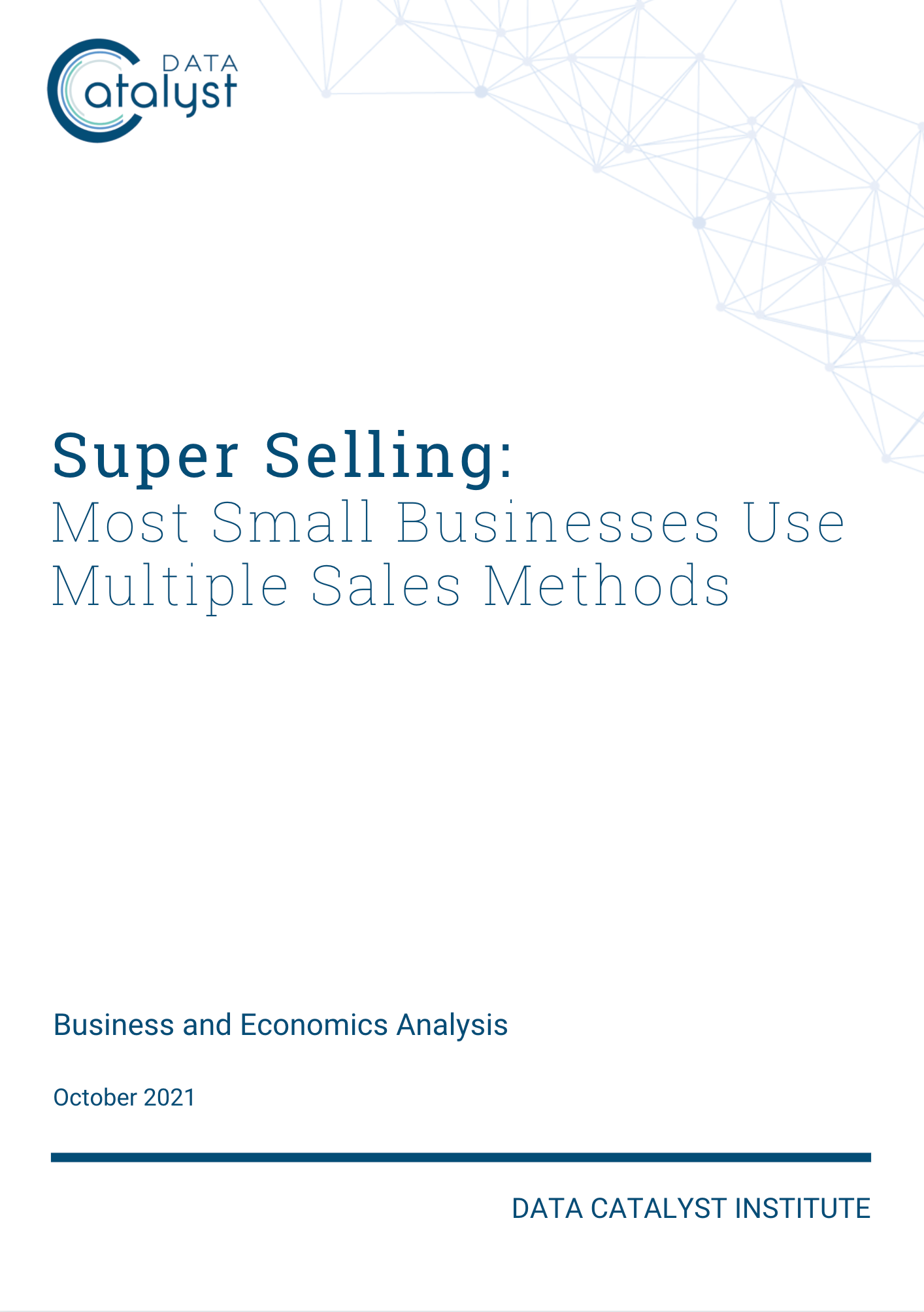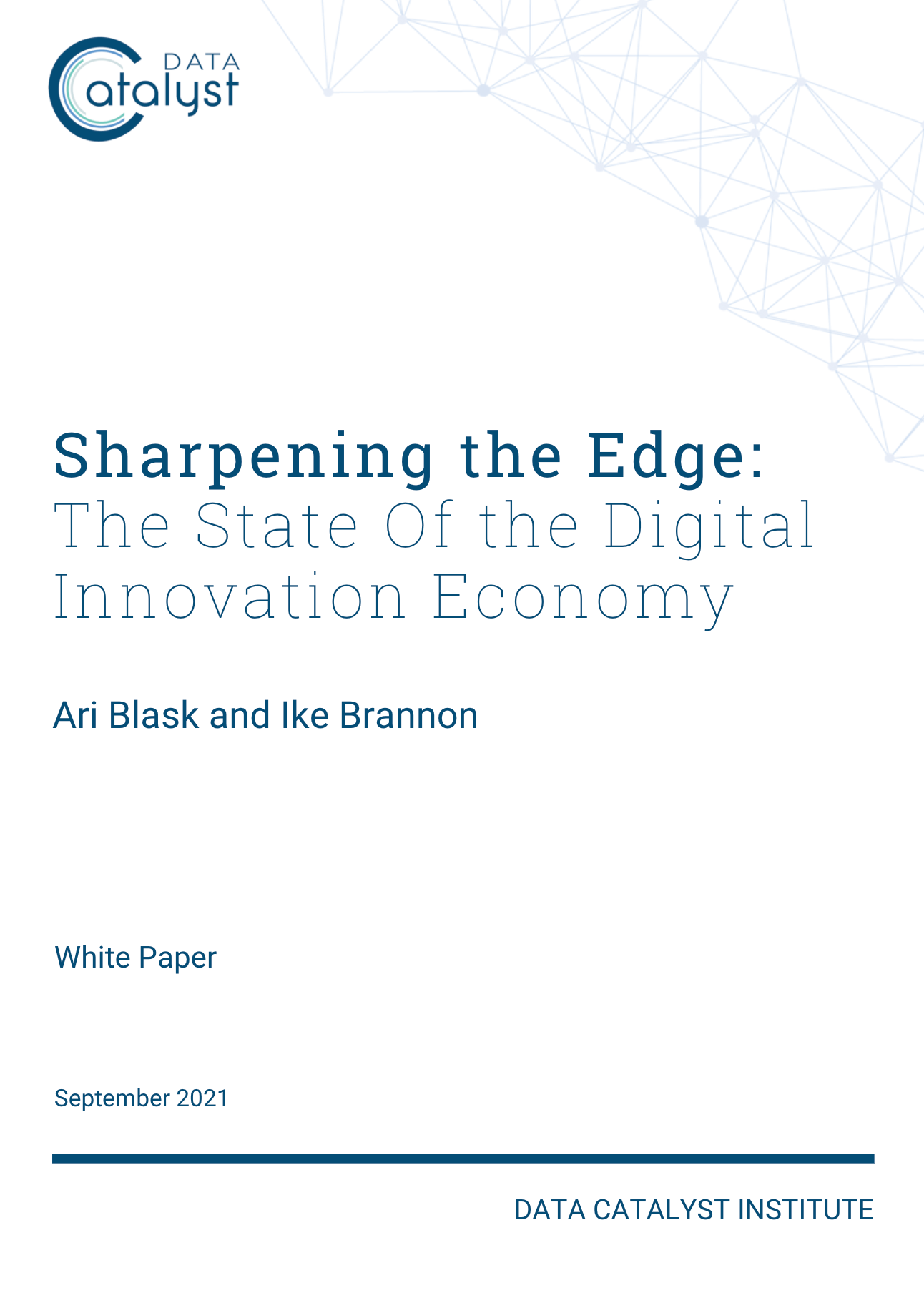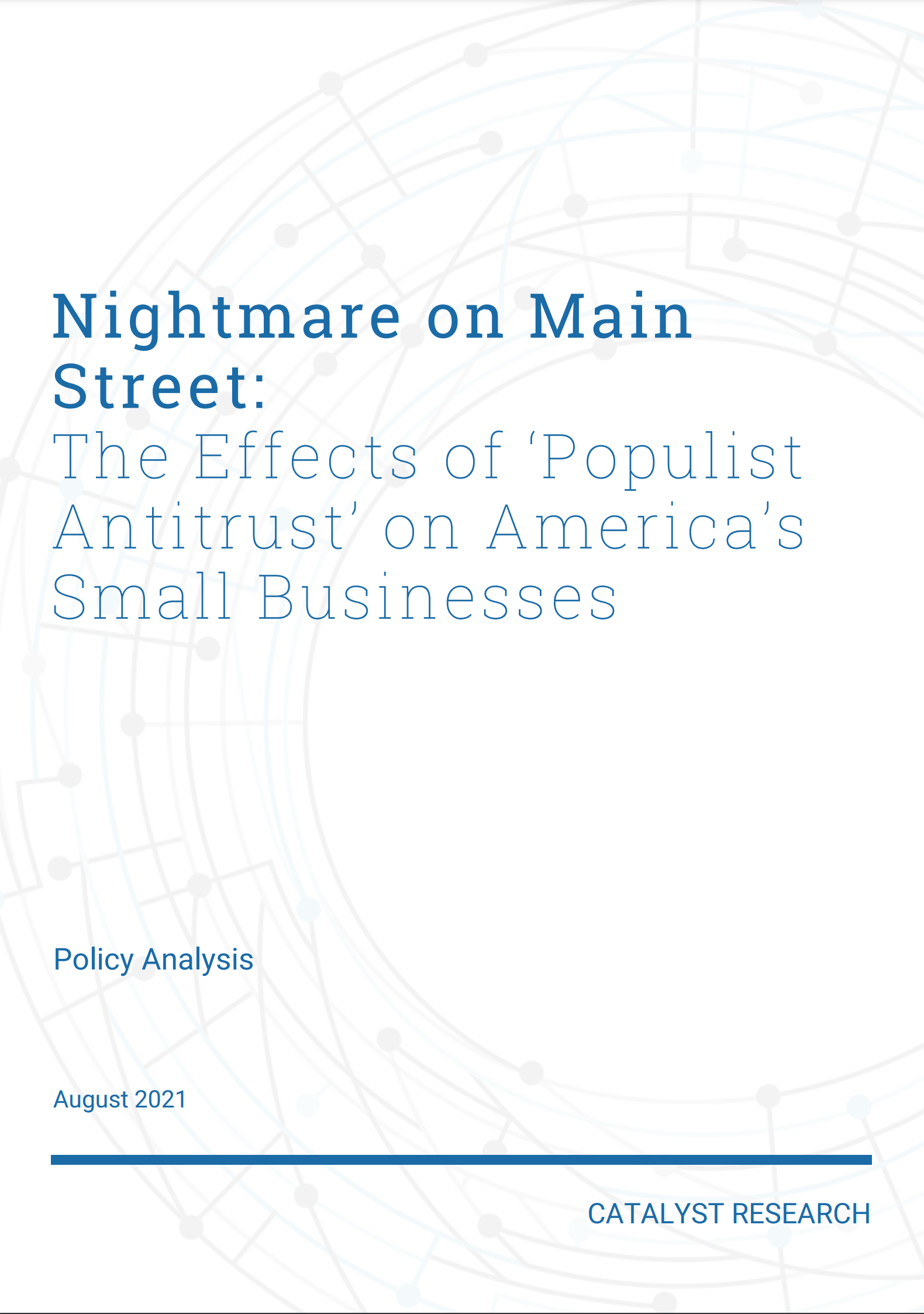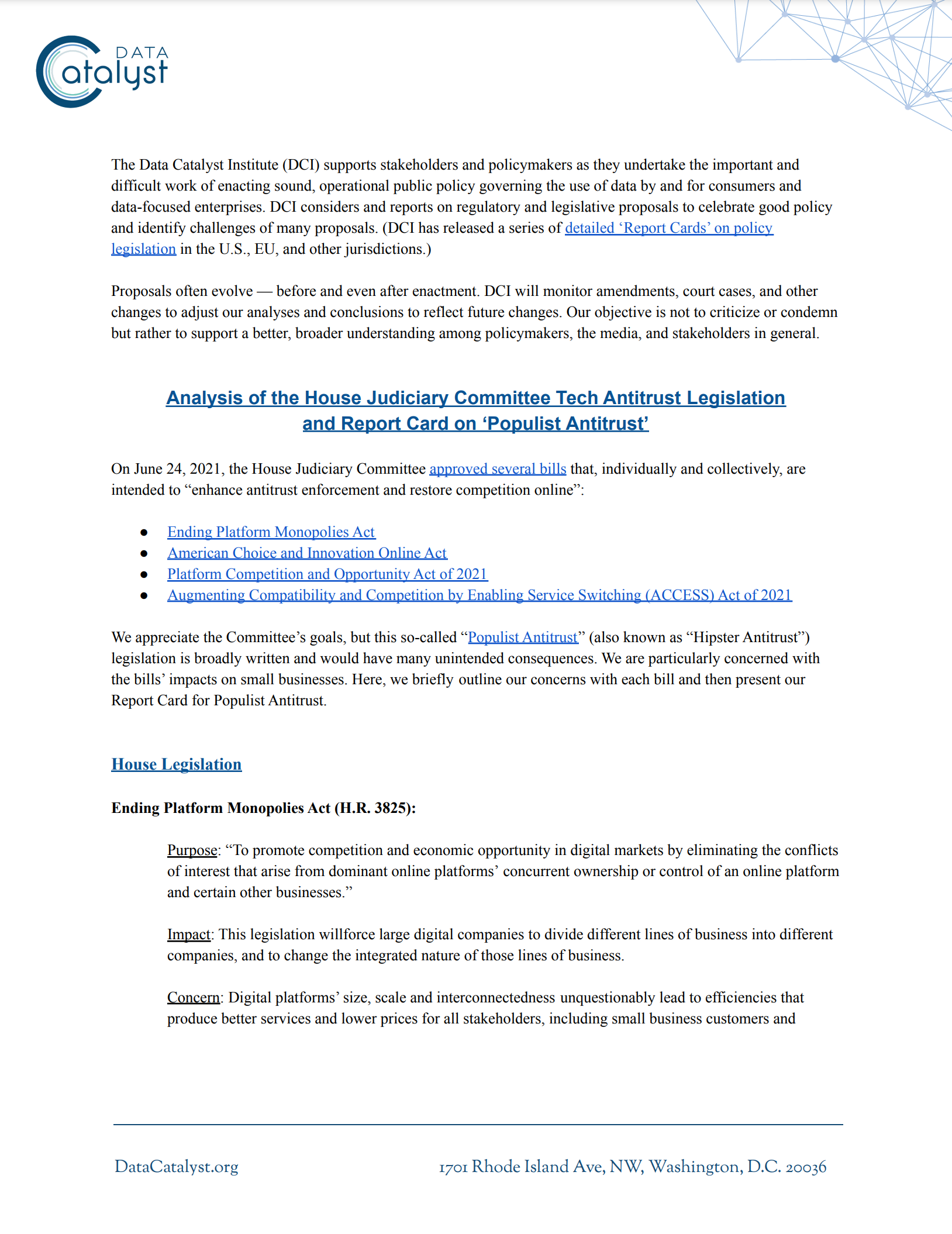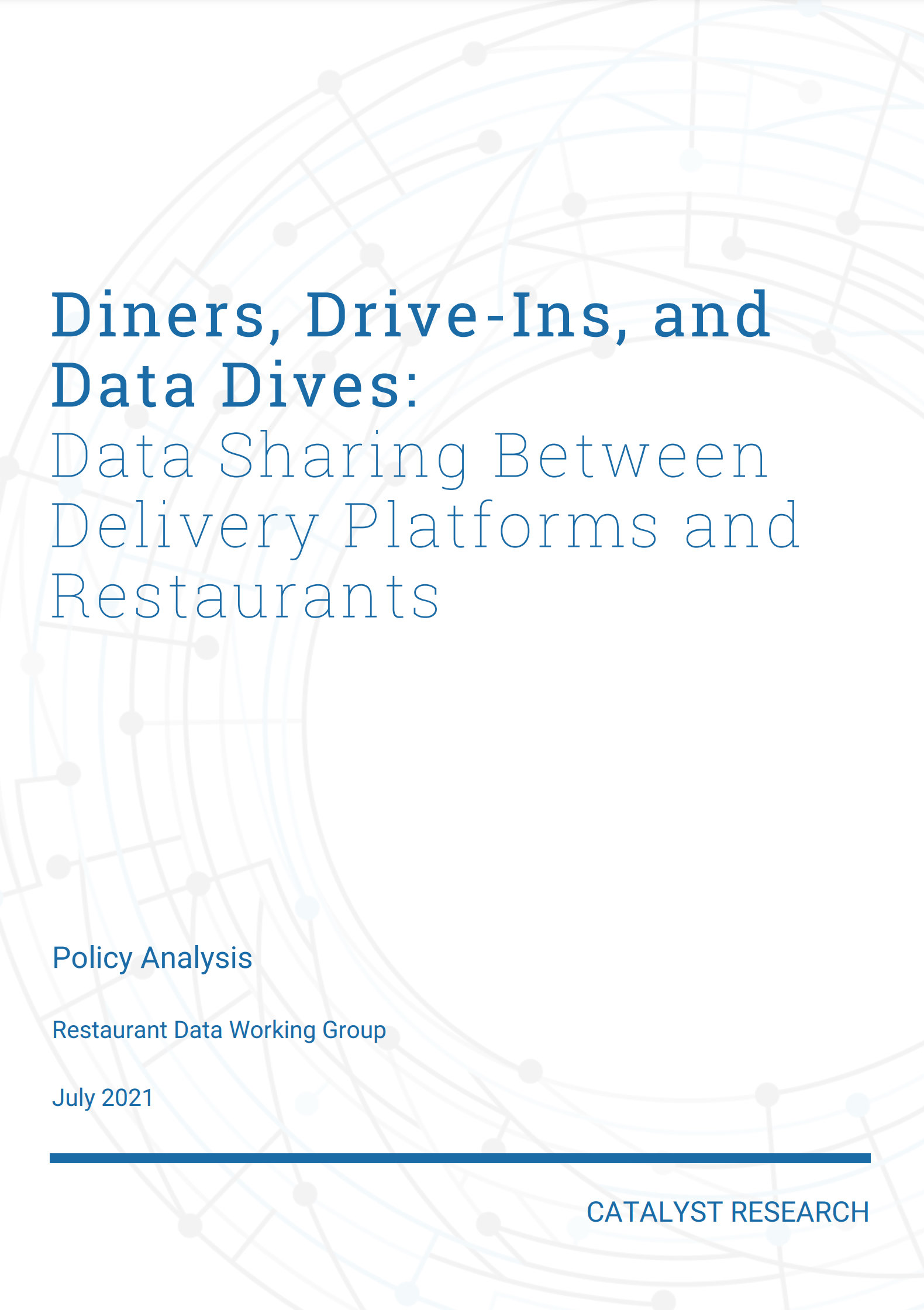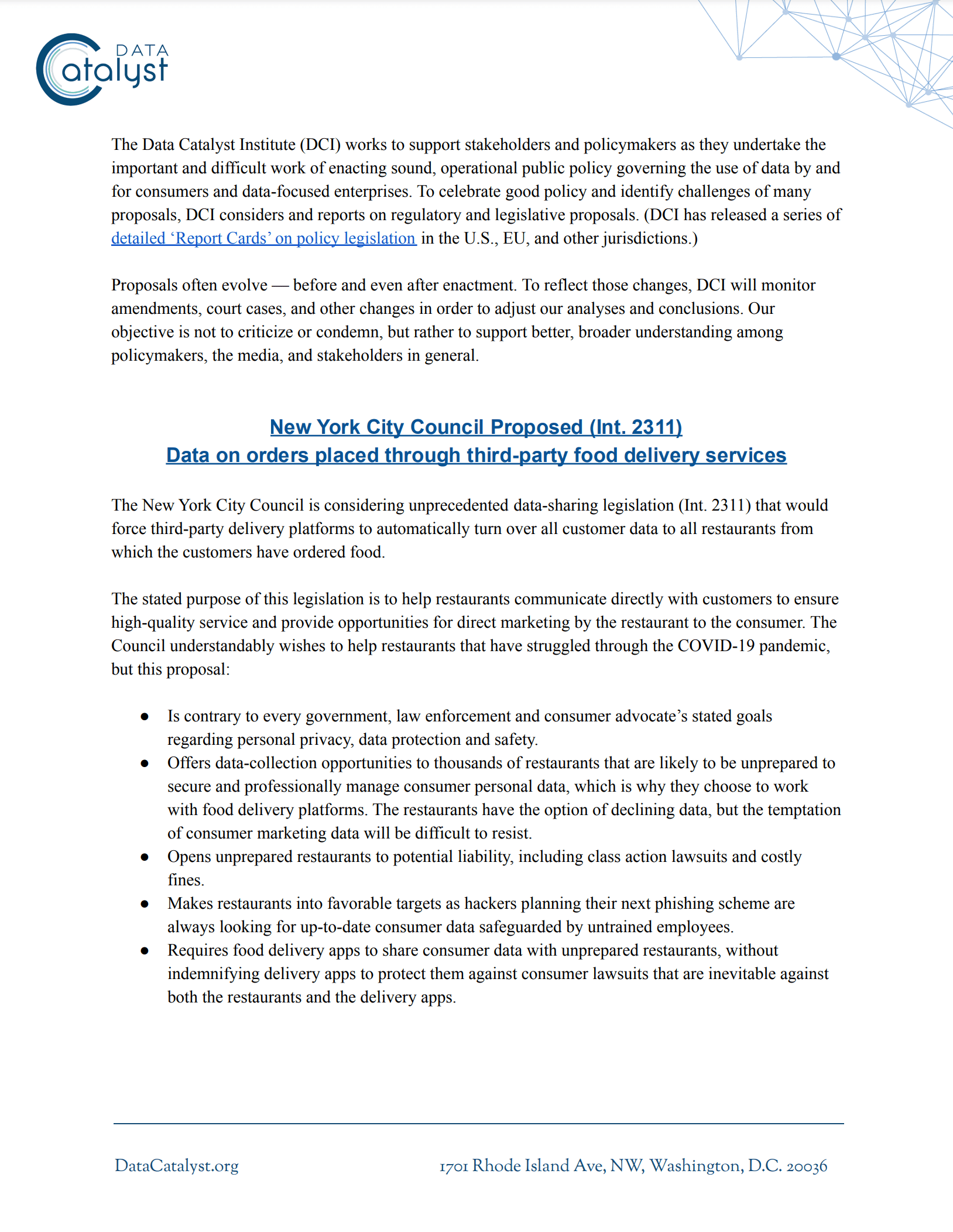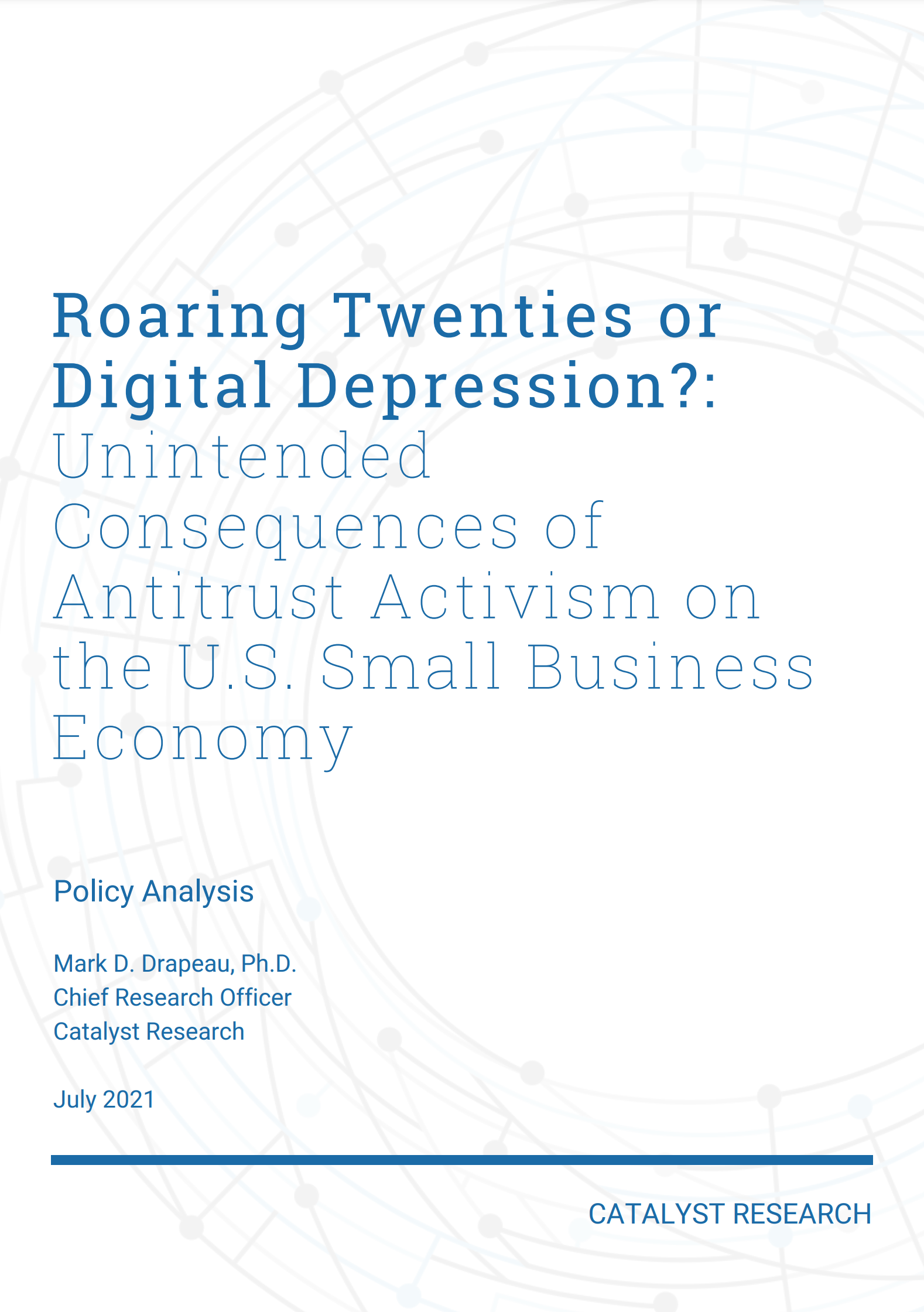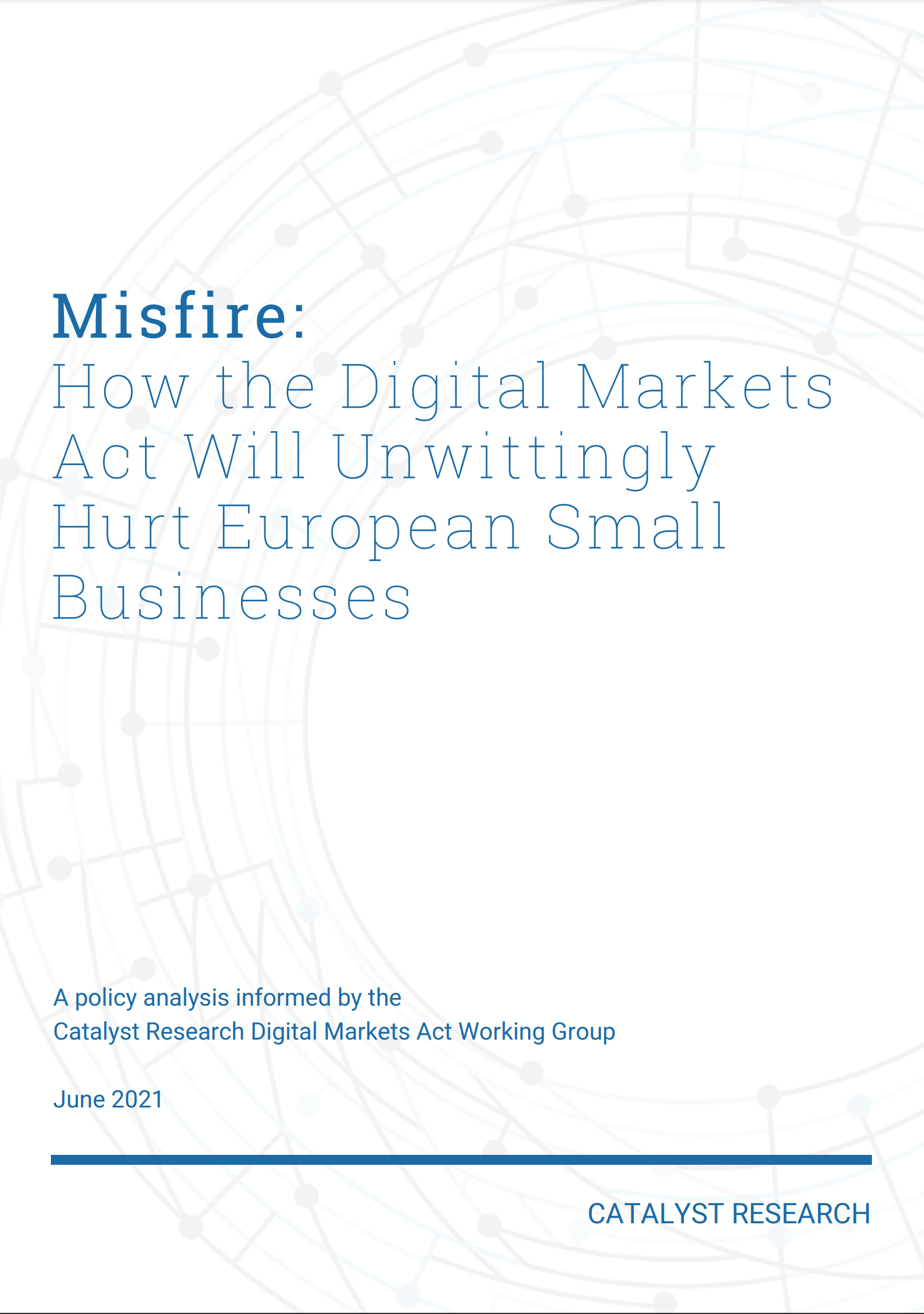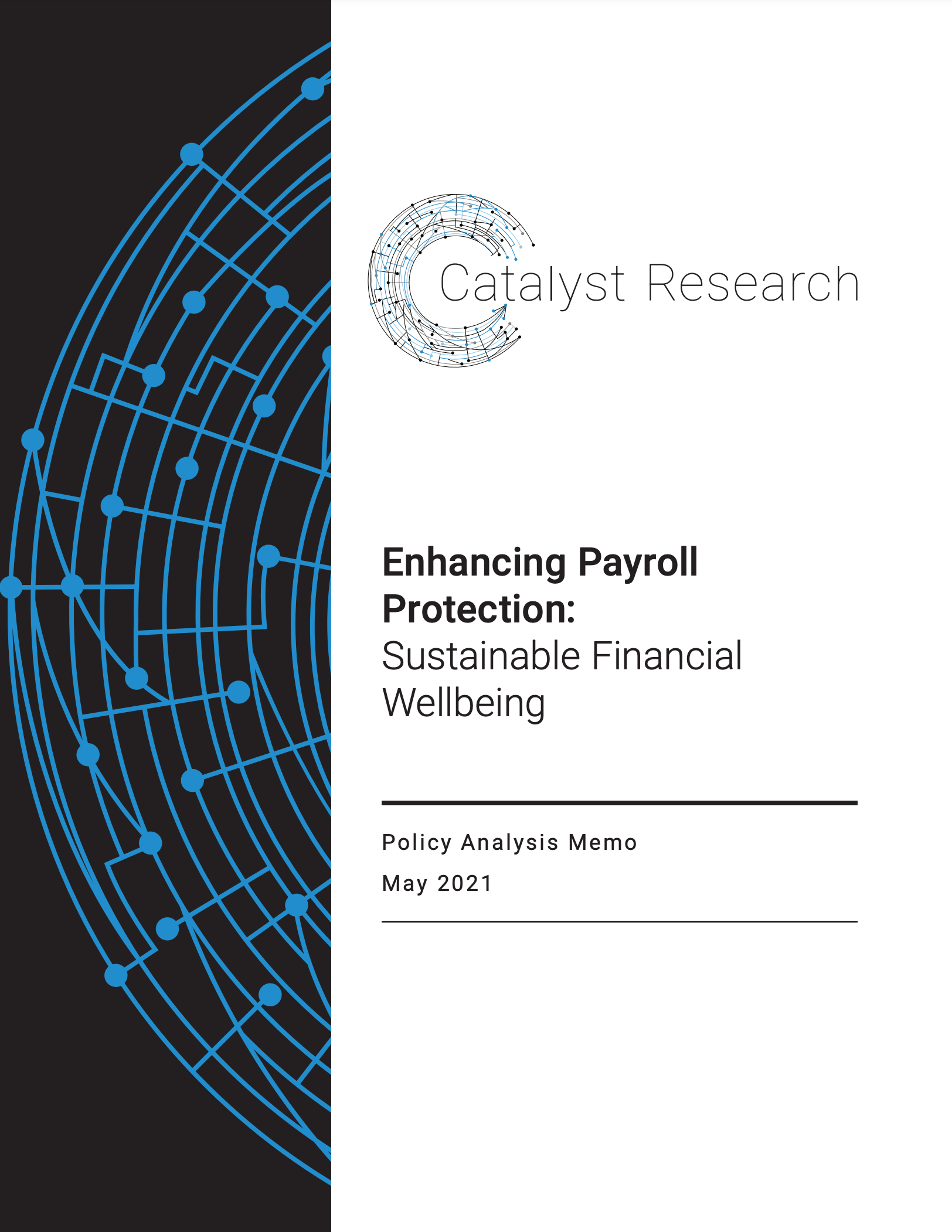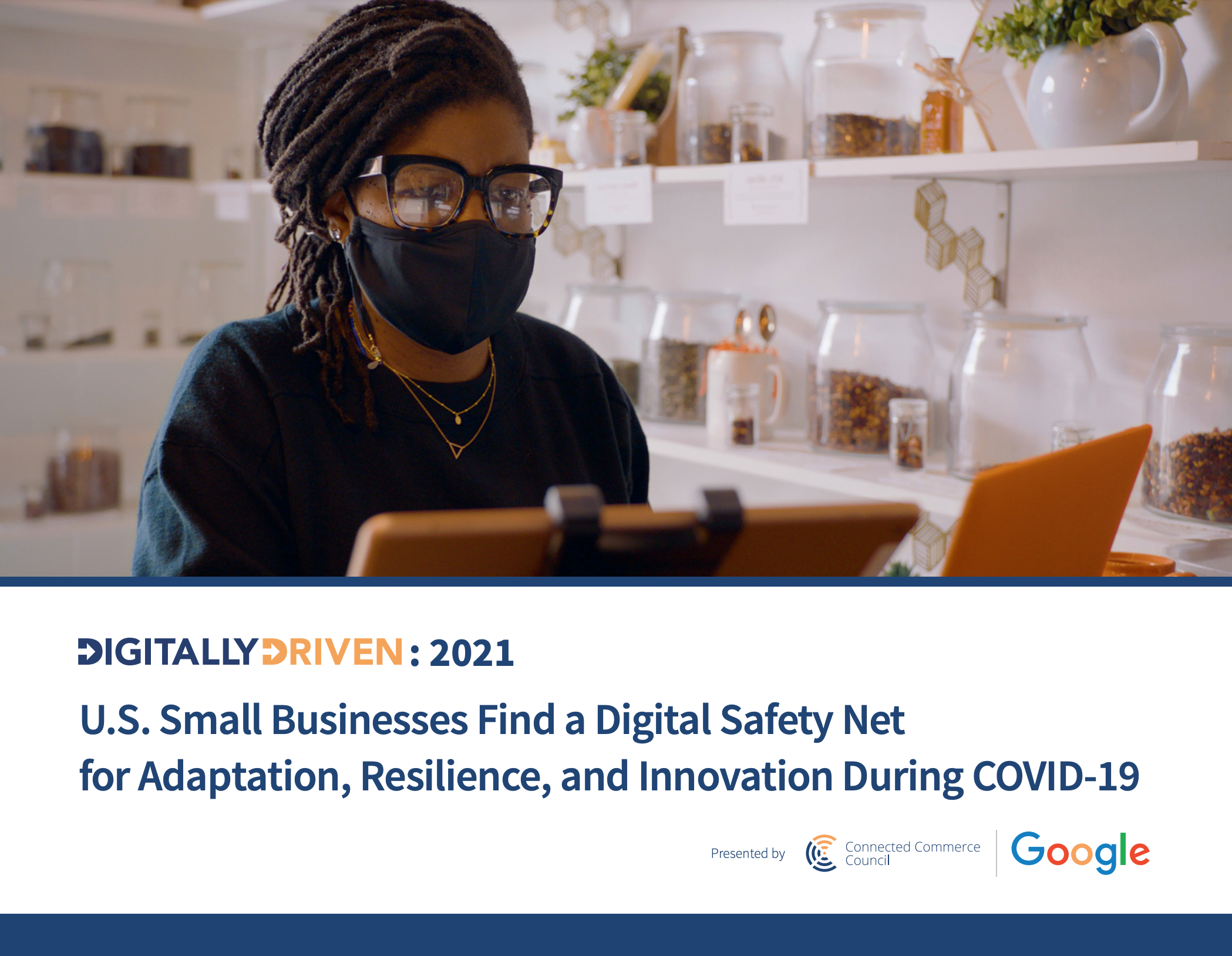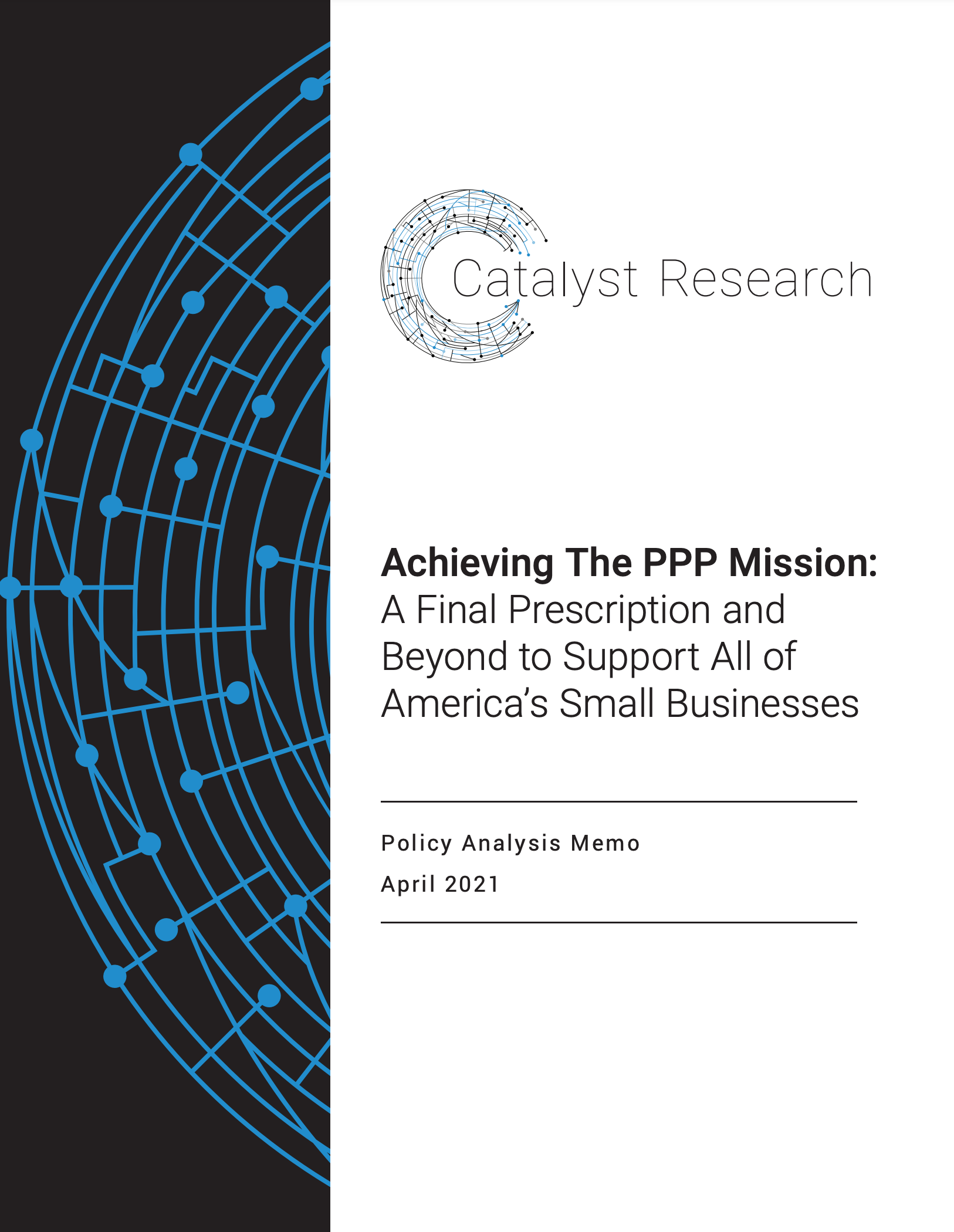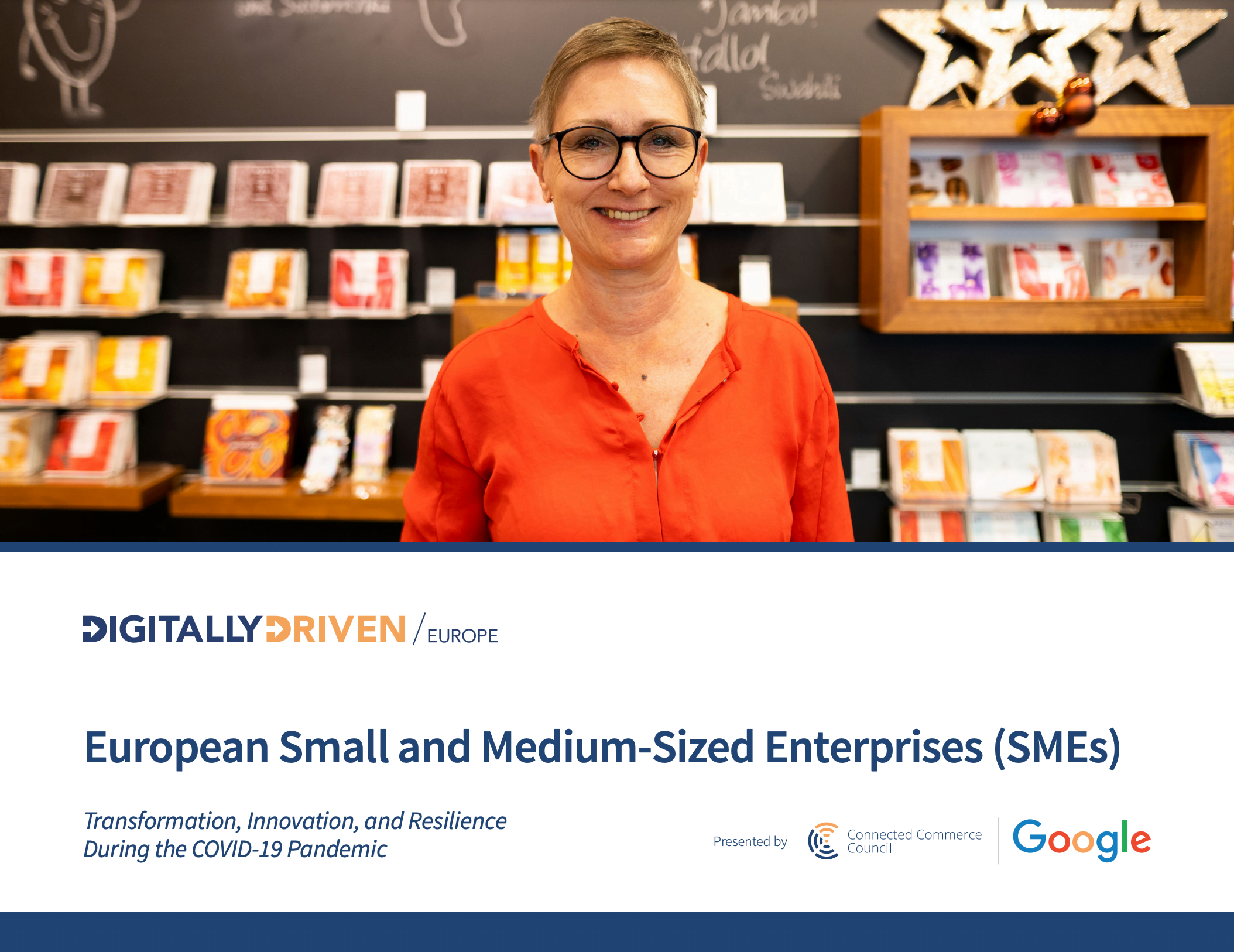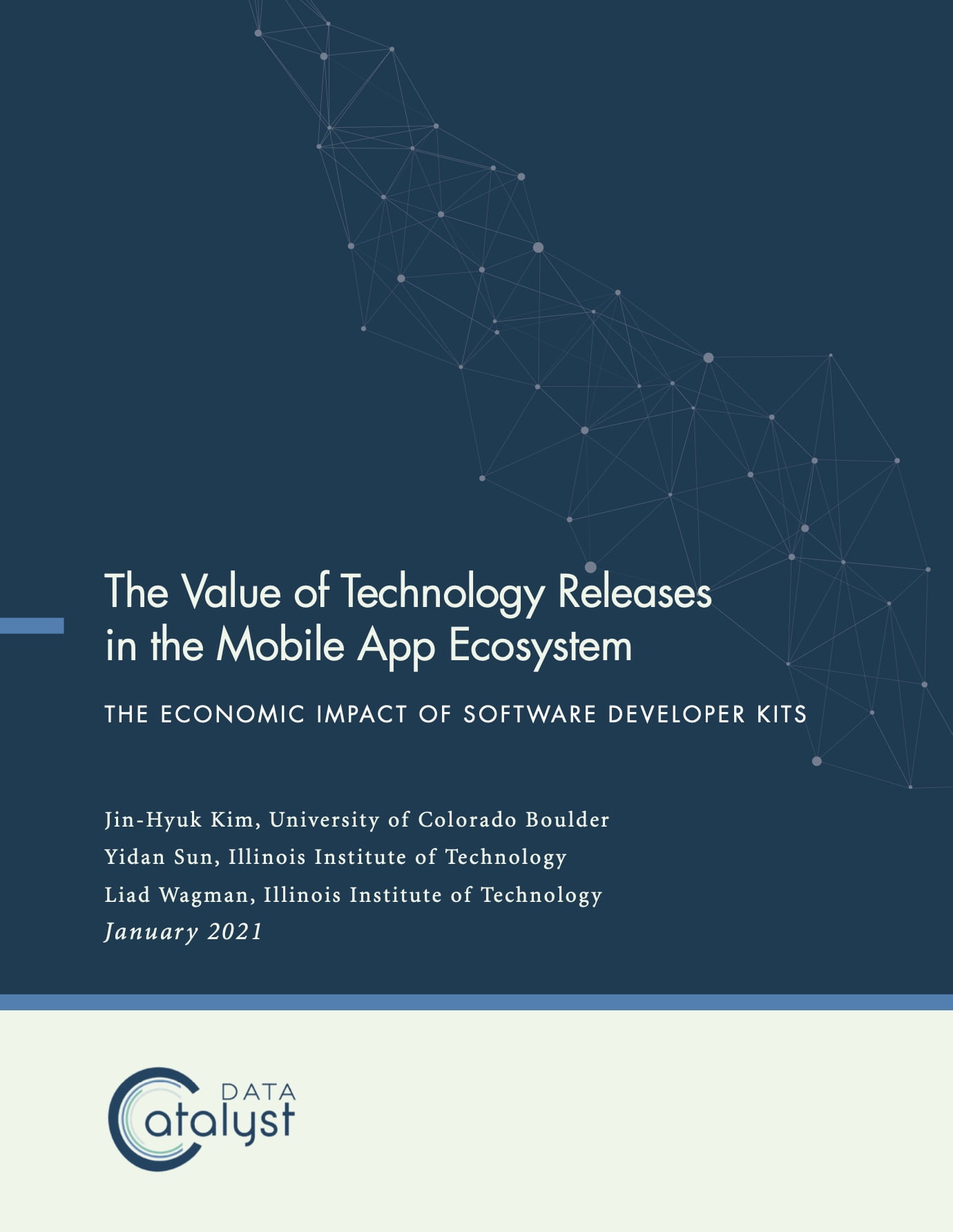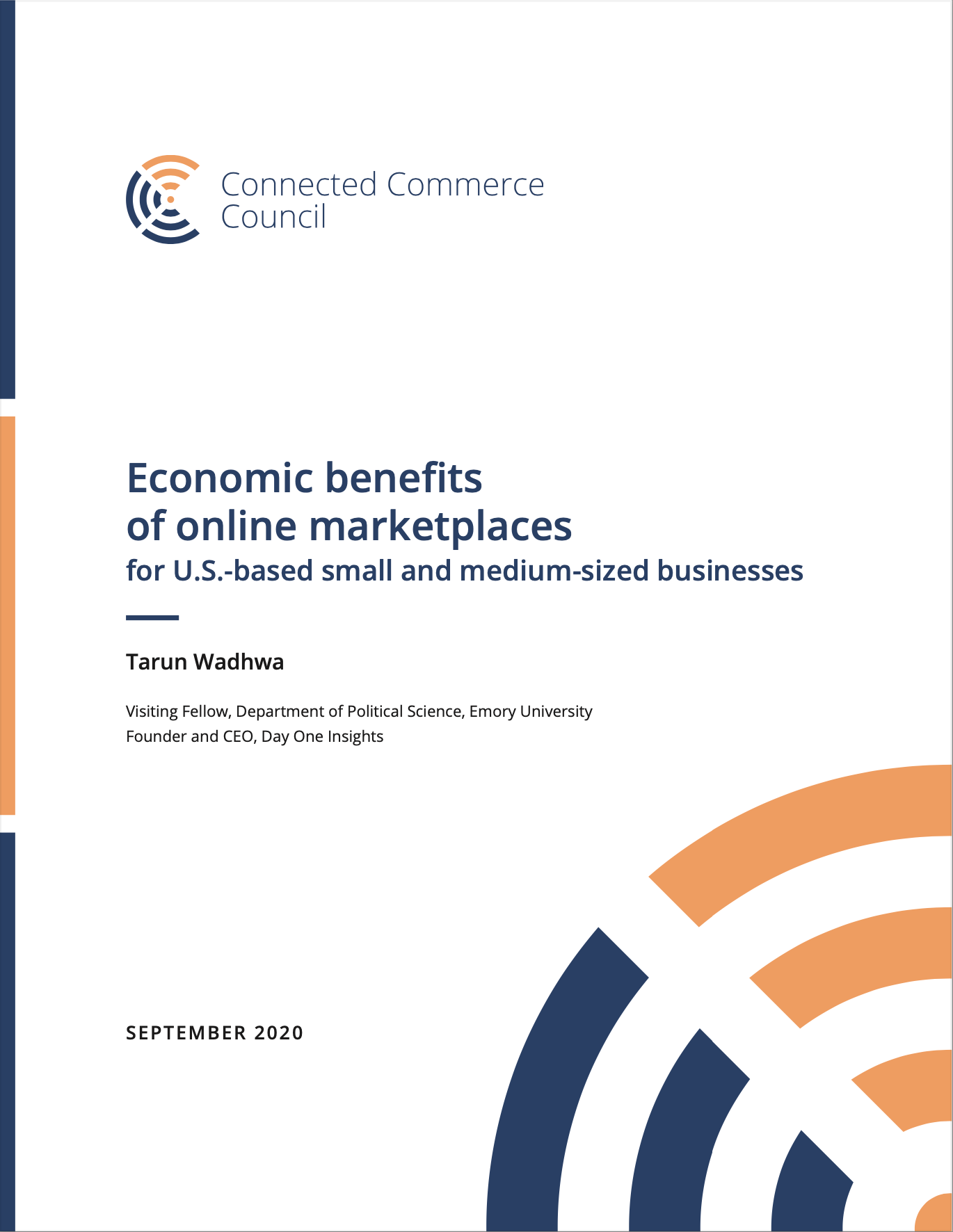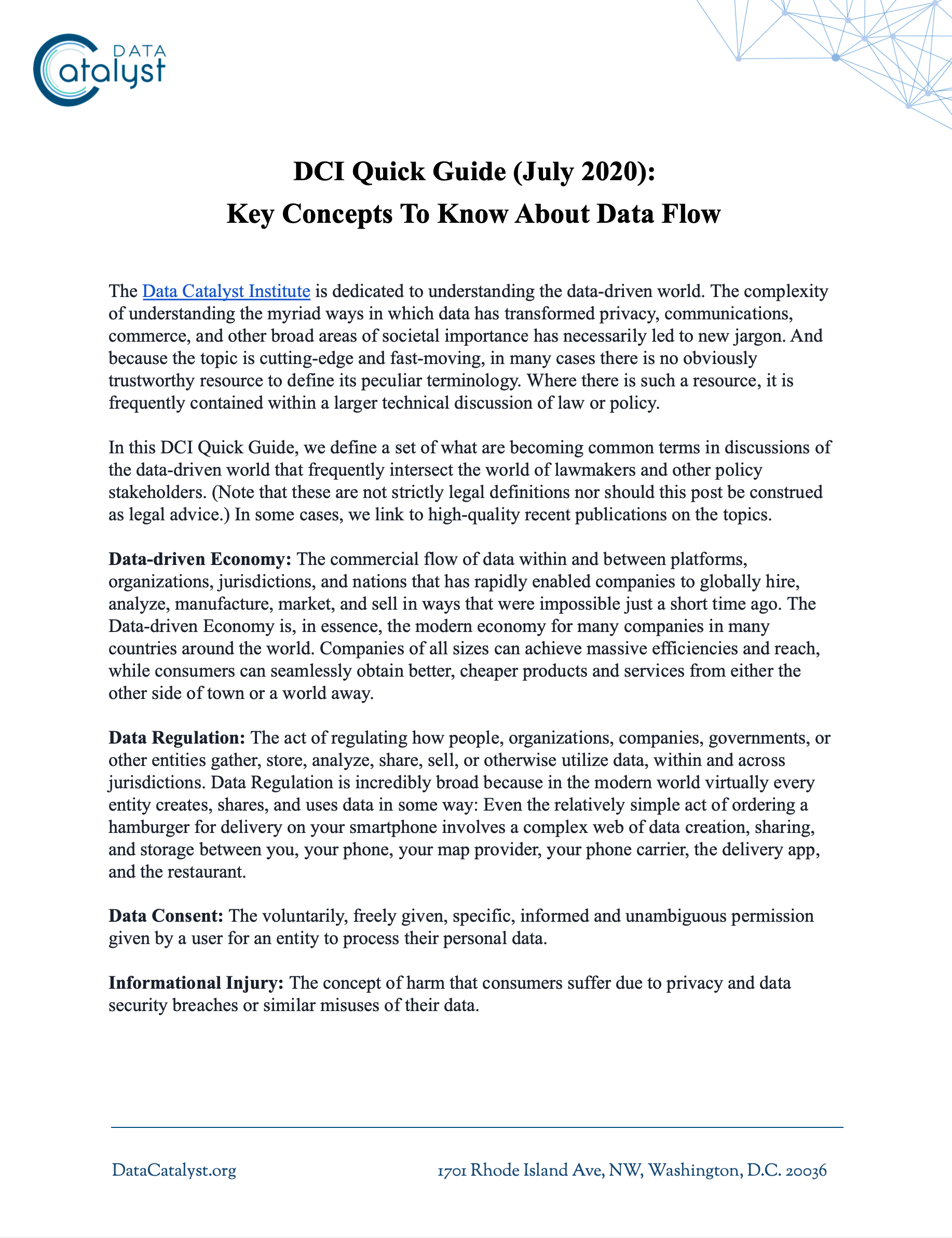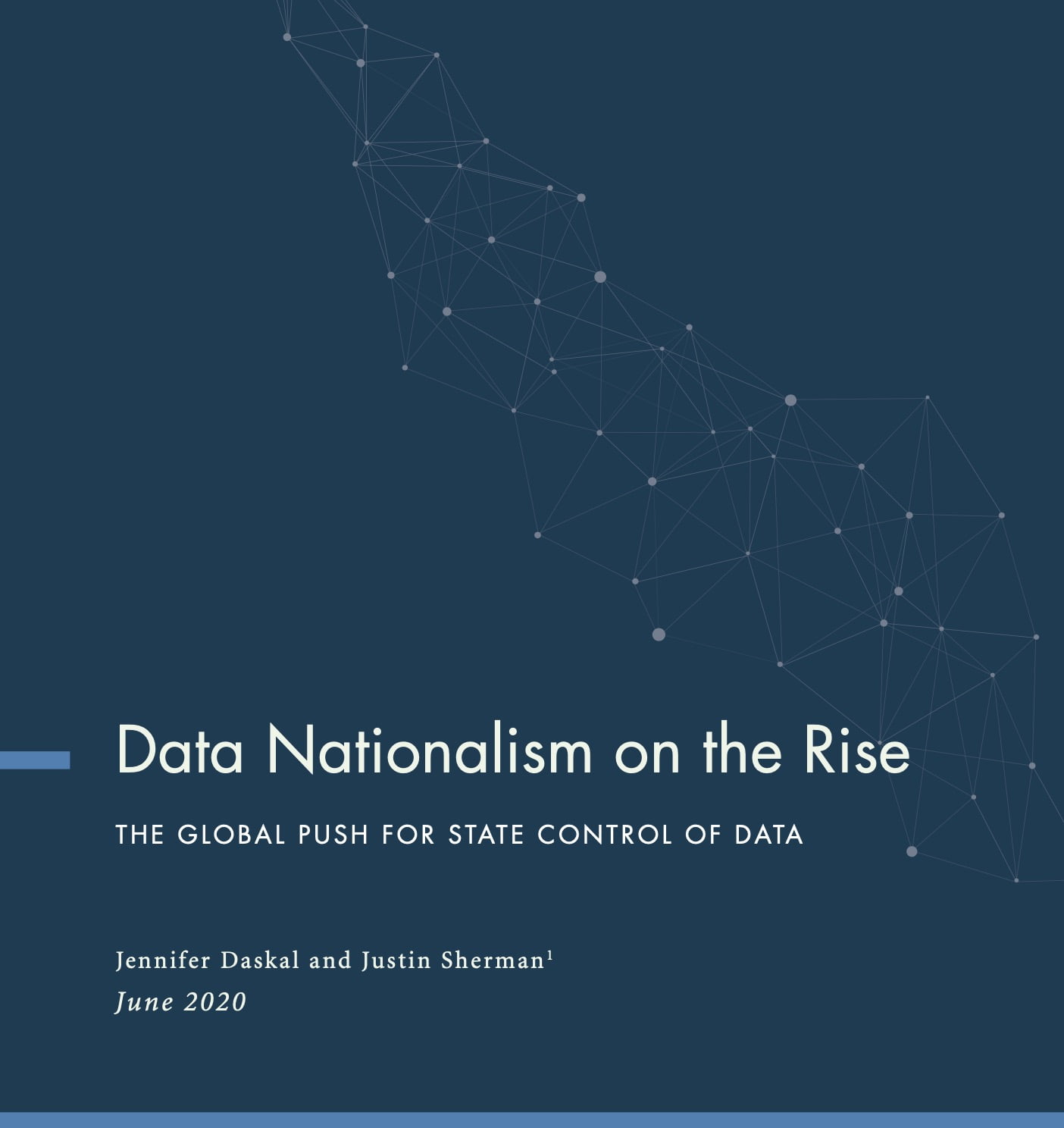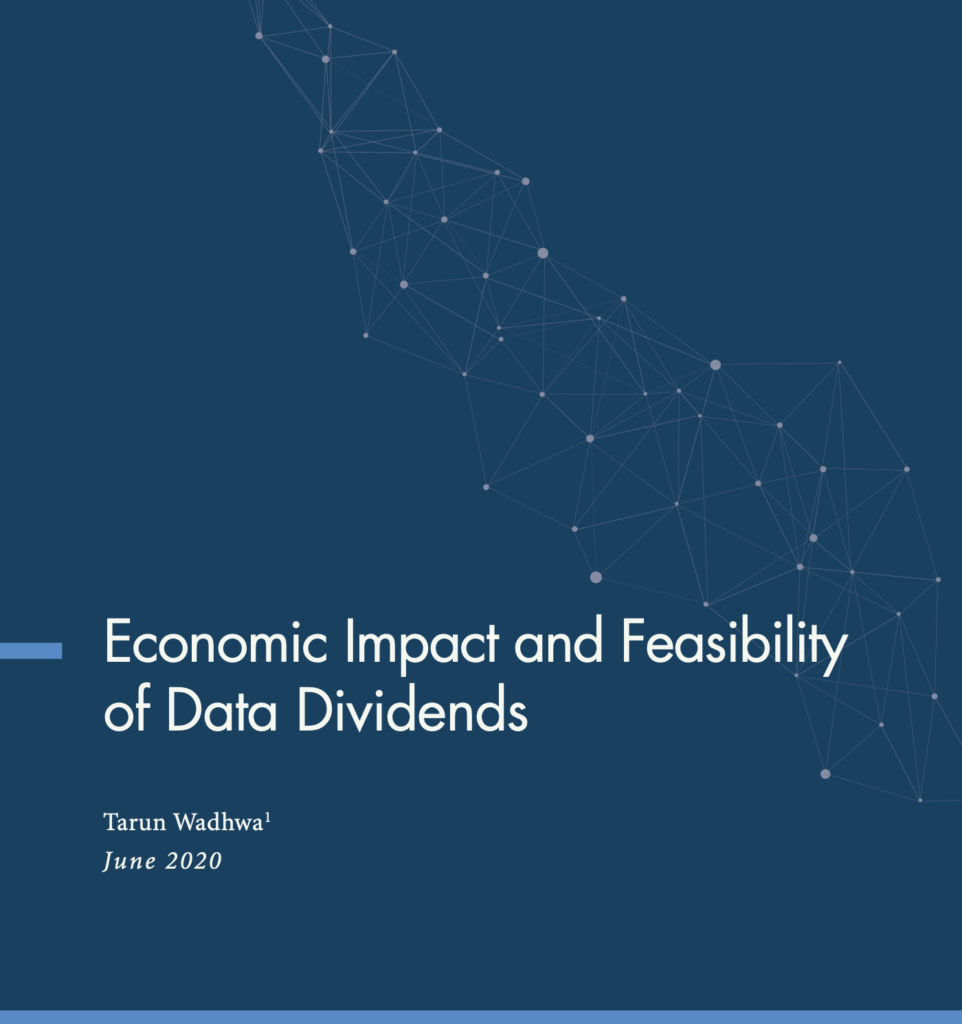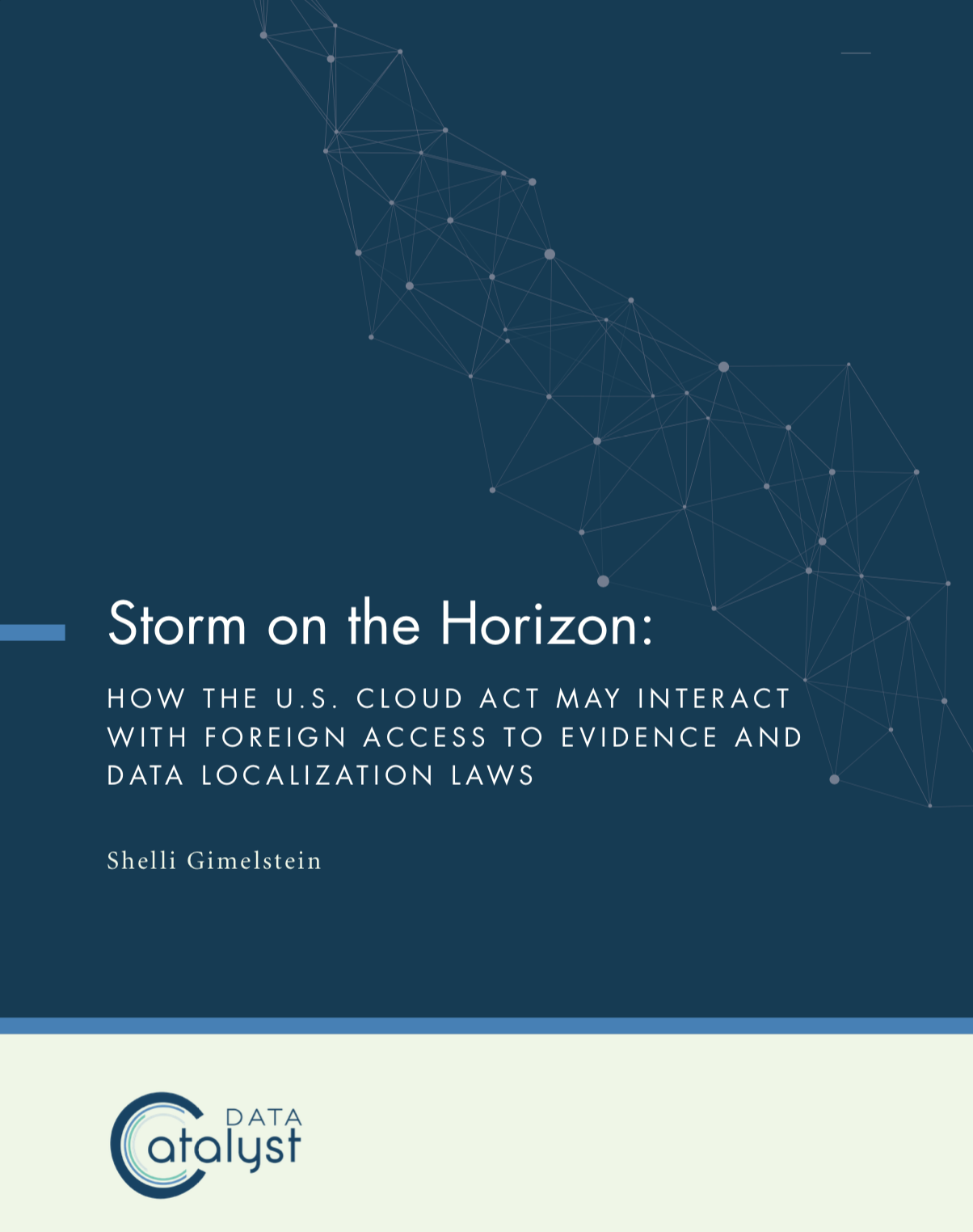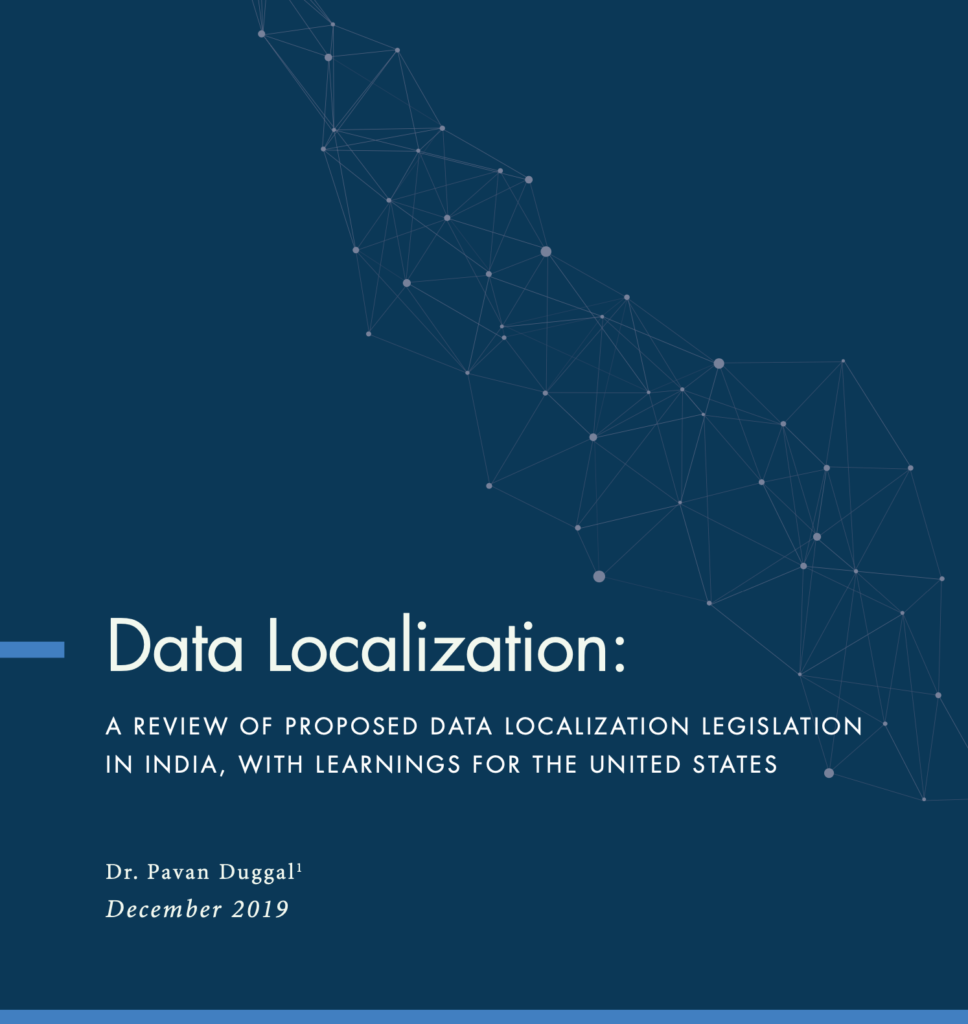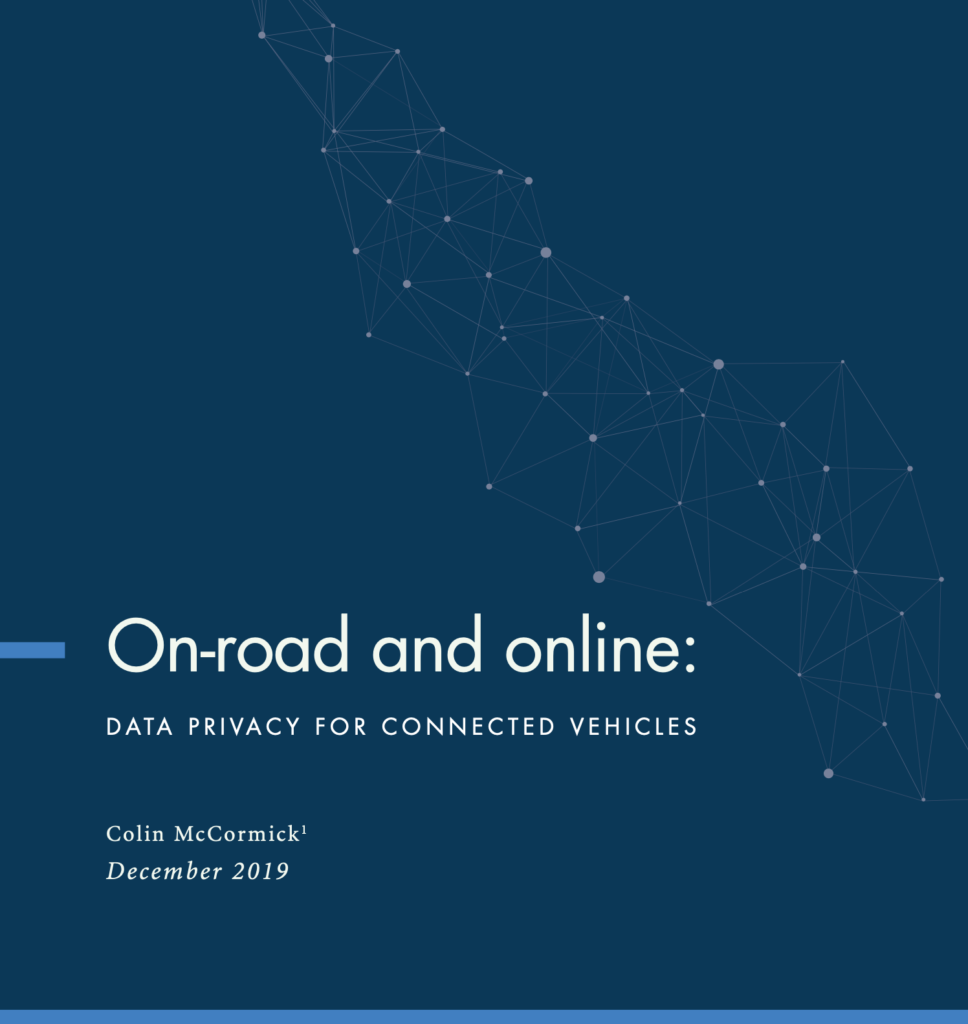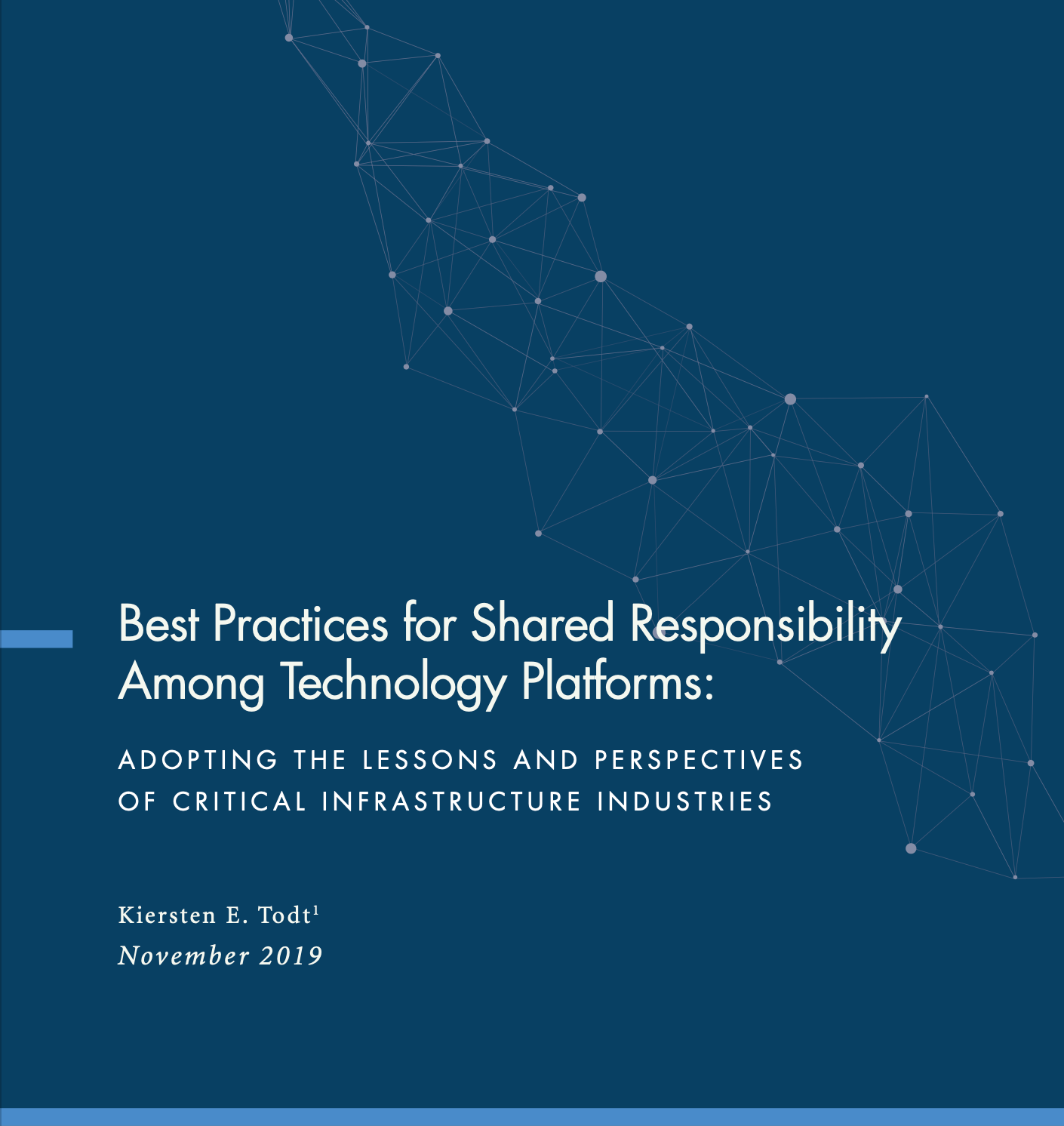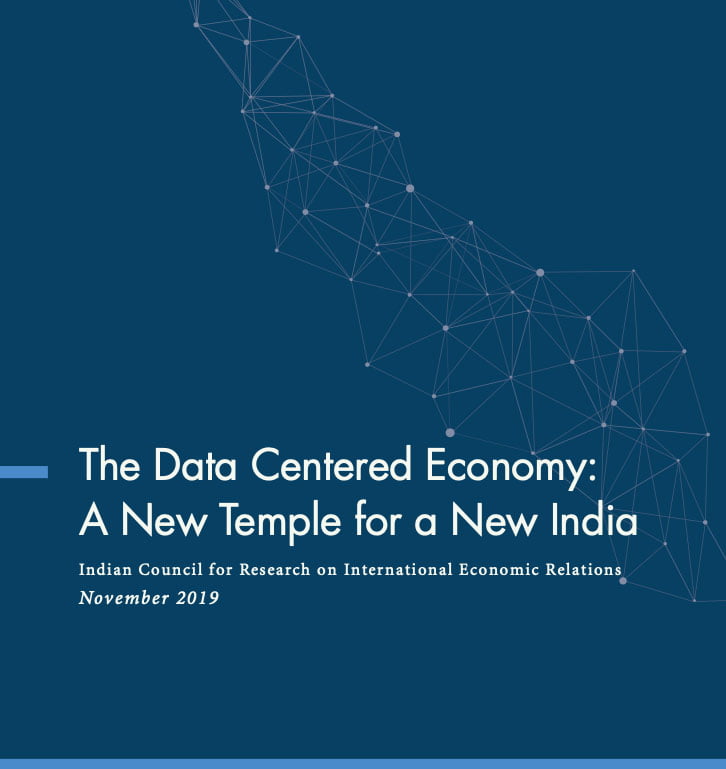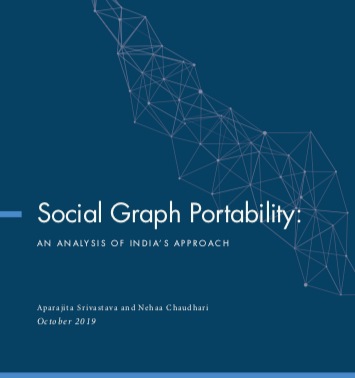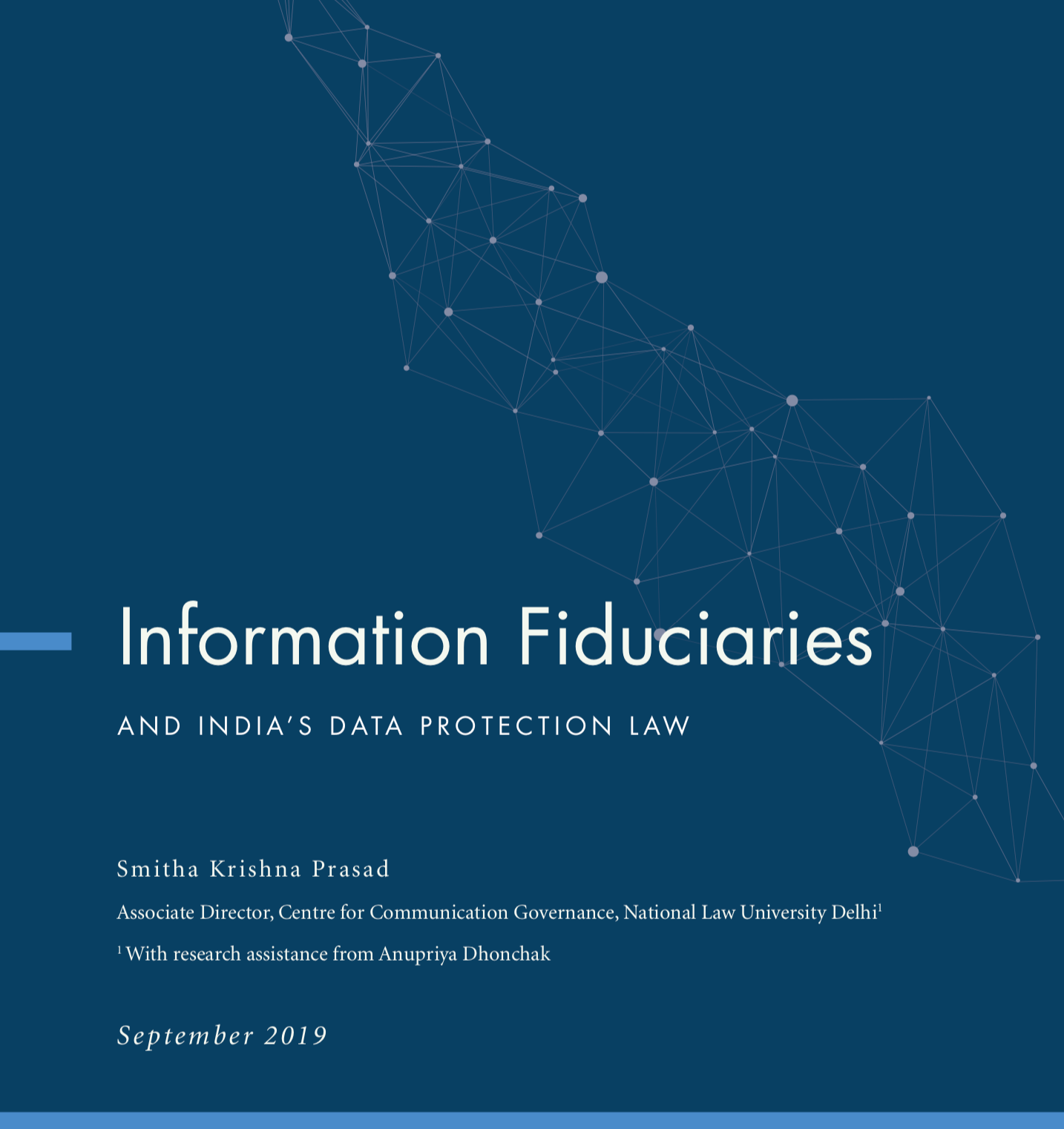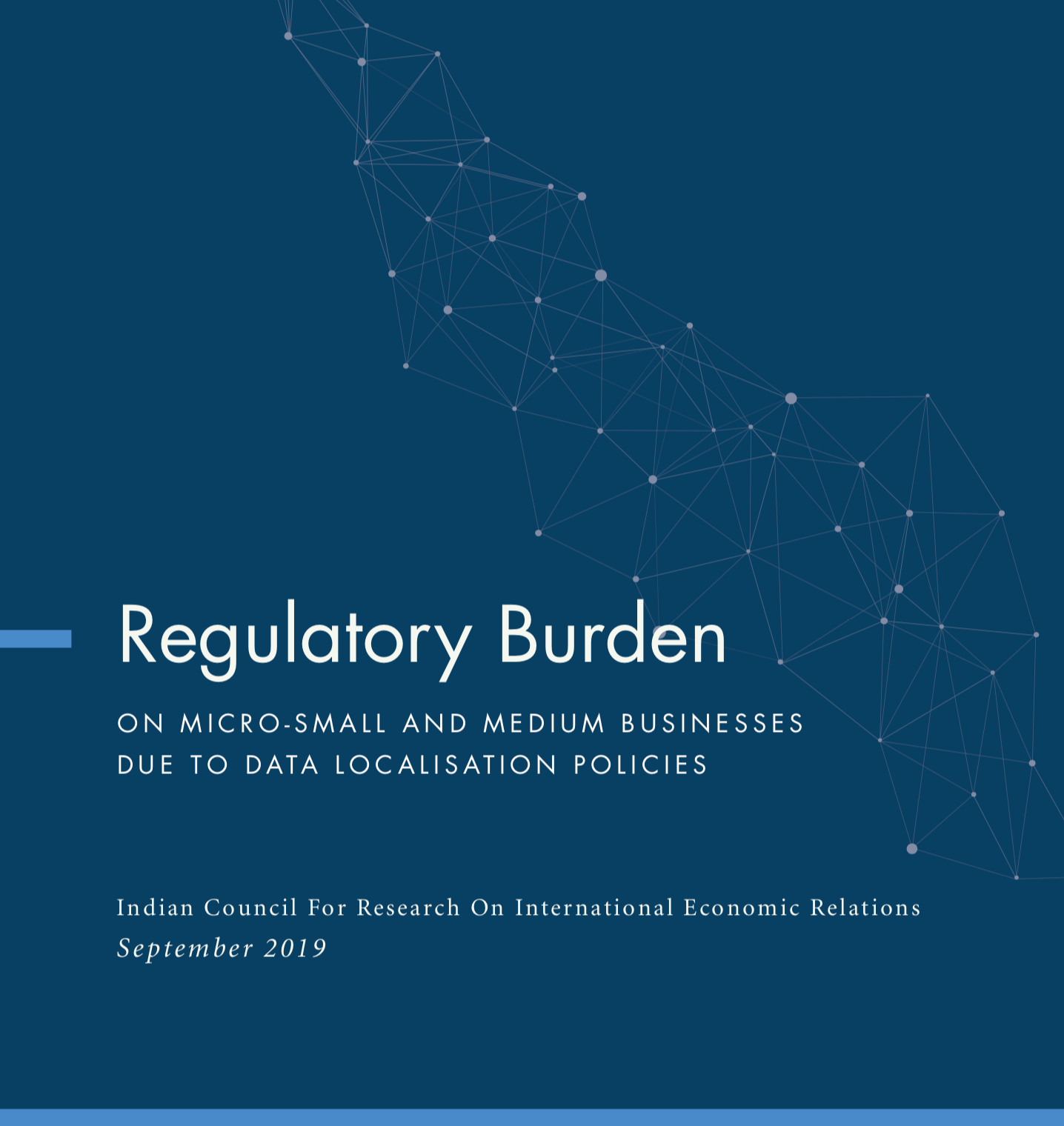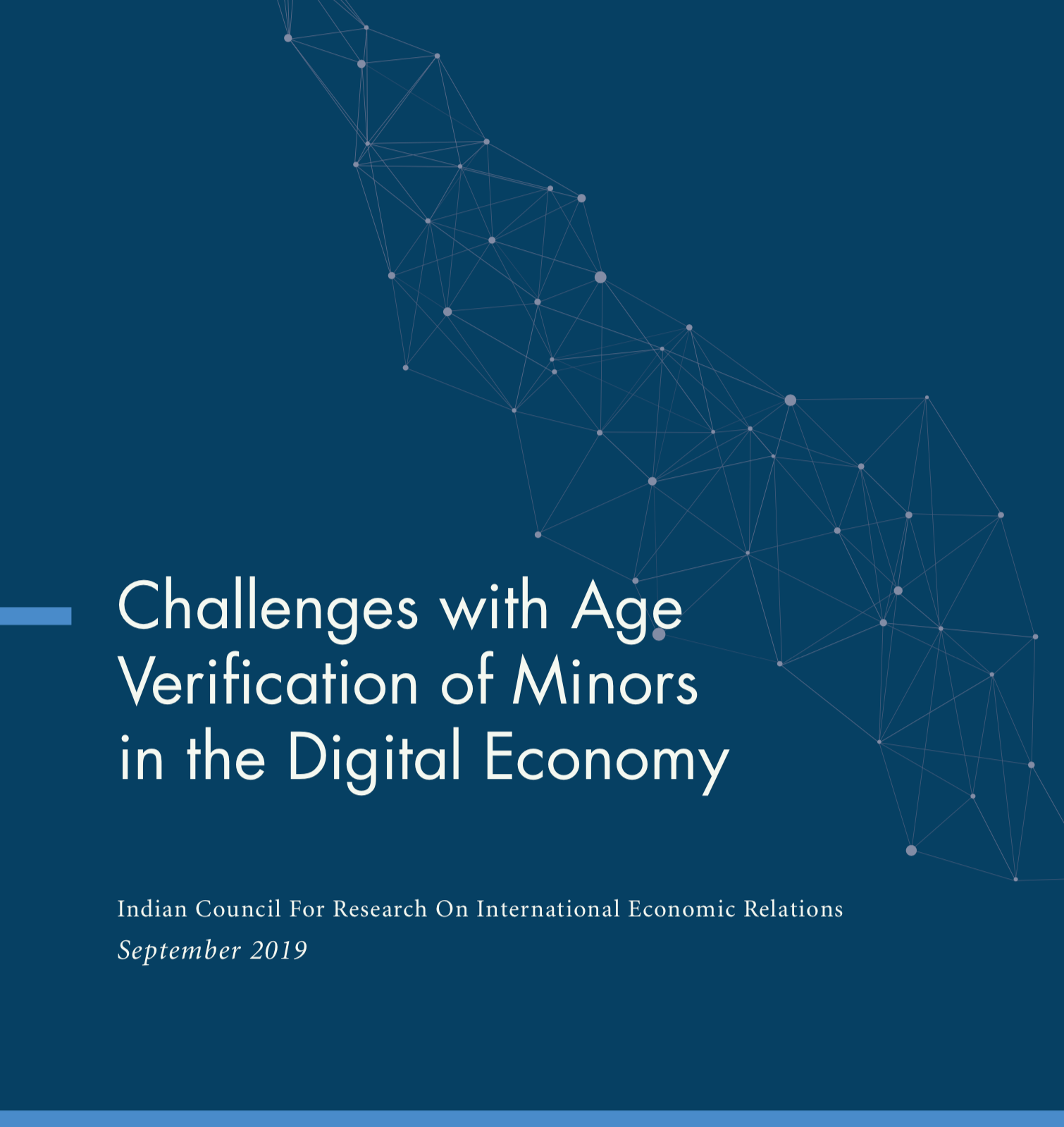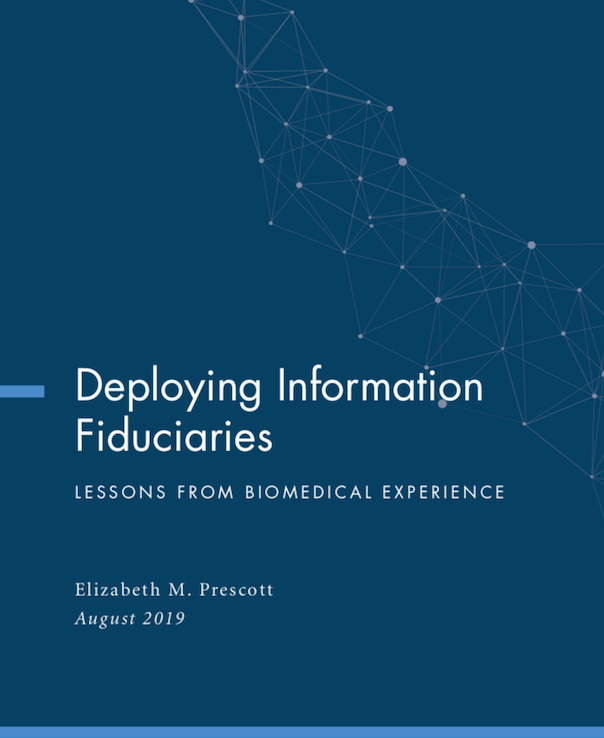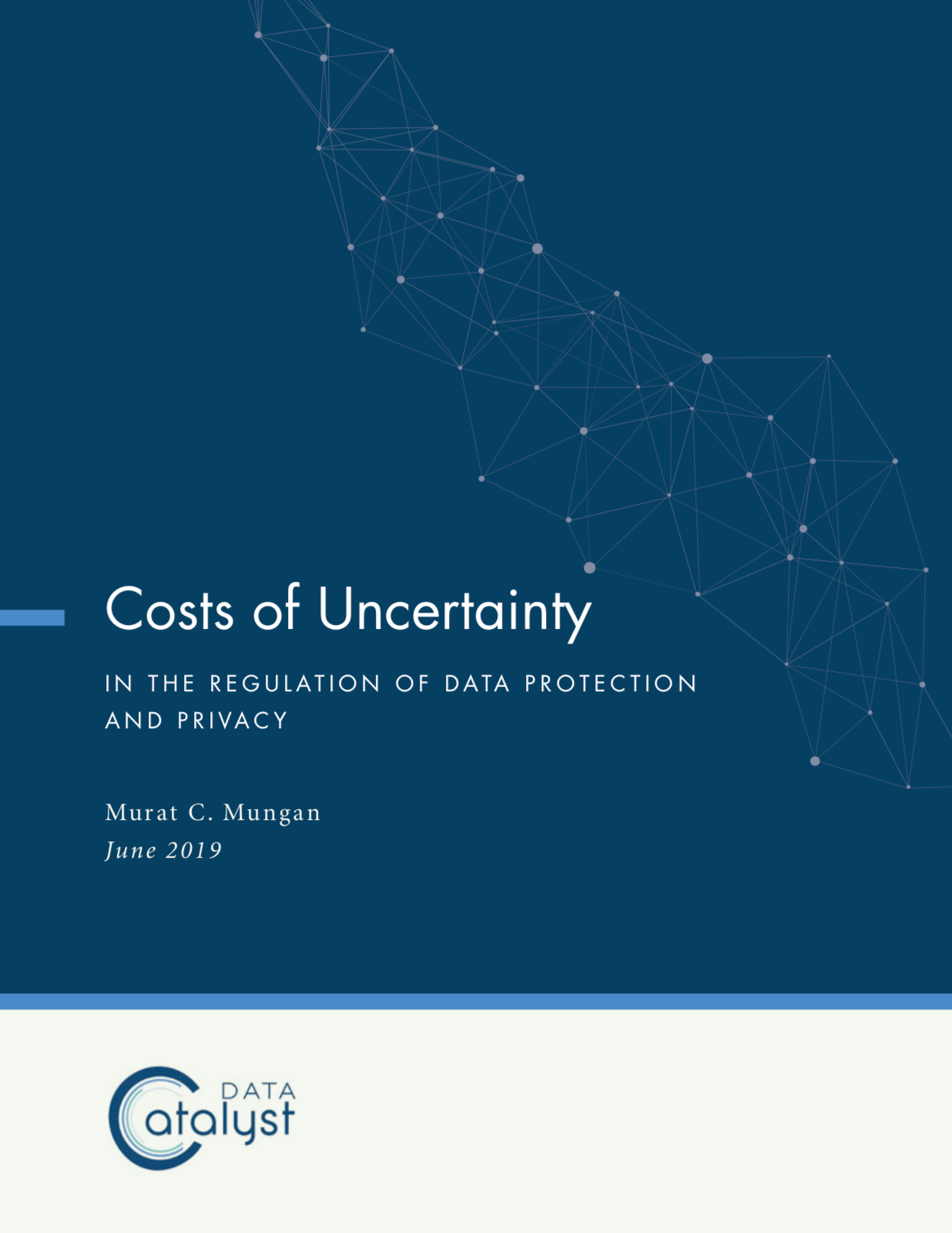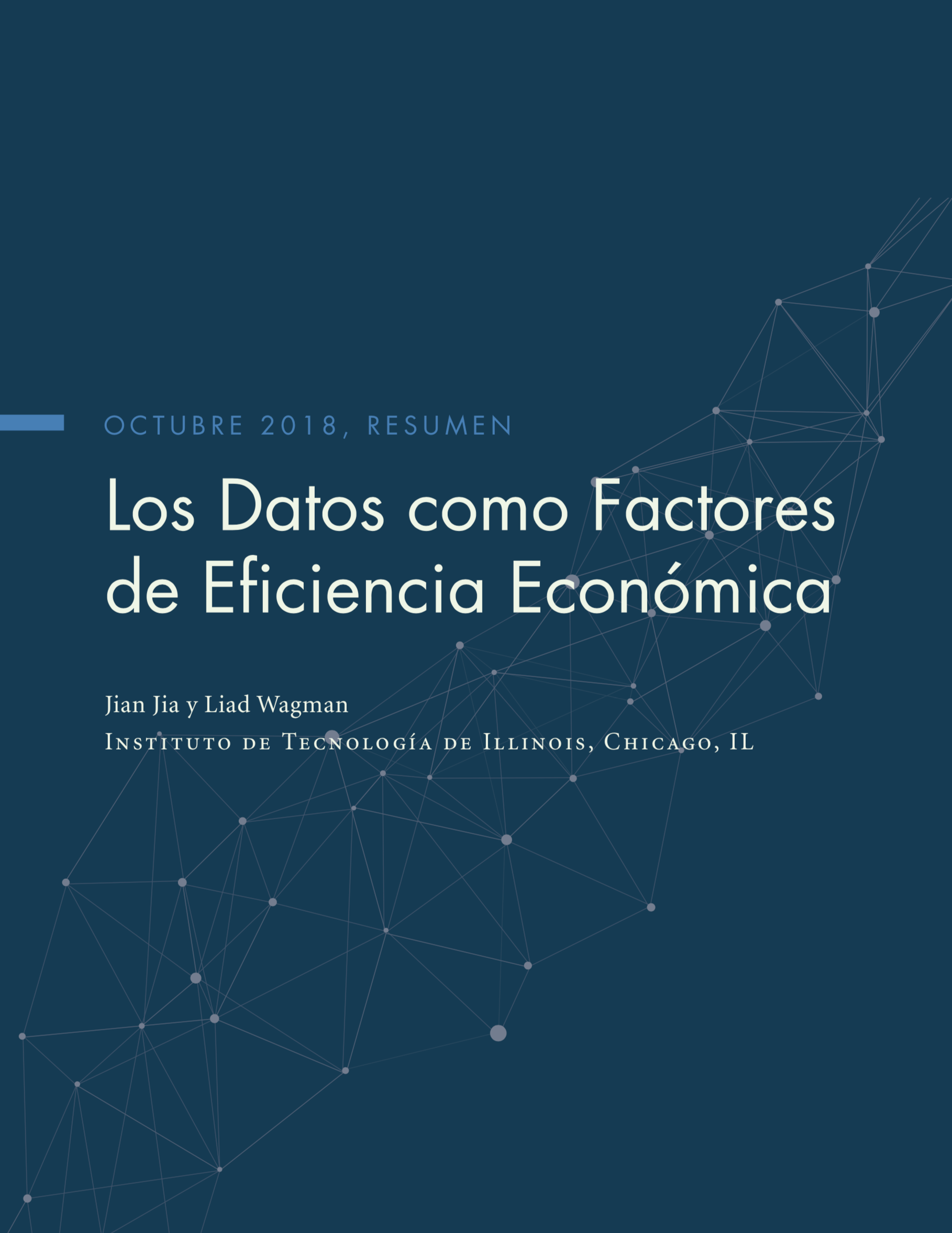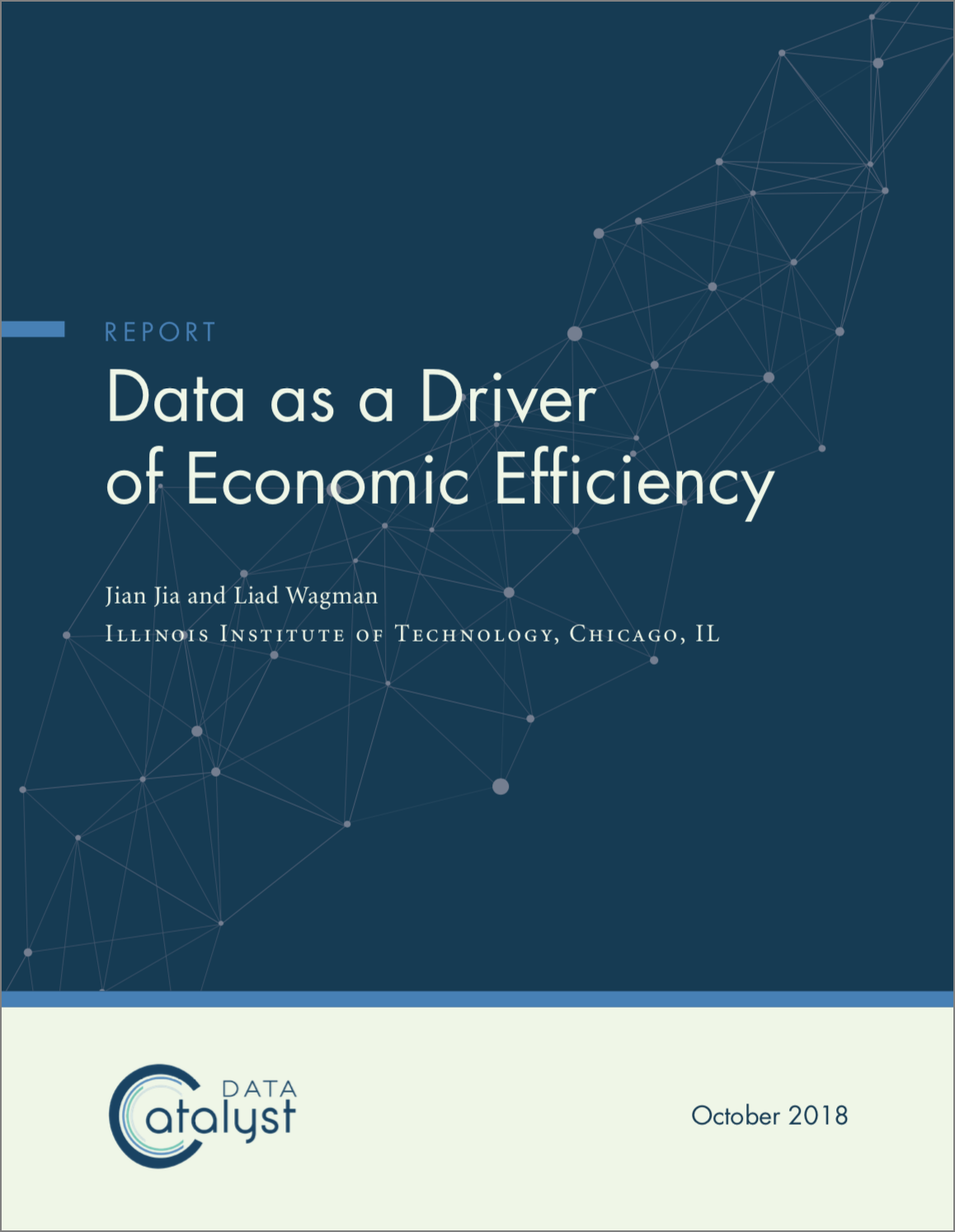What is the Data Catalyst Institute?
The Data Catalyst Institute (DCI) is a research organization focused on informing and improving global public policy and thoughtful discourse within our data-driven economy. DCI provides governments, academics, and industry partners with the latest market intelligence, expert working groups, regulatory analyses, and original research.
The Economic Importance of Fair Use for the Development of Generative Artificial Intelligence
Generative AI (GenAI) represents a pivotal technology for U.S. economic competitiveness and global leadership. Given it’s transformative potential, GenAI’s development is increasingly critical to maintaining America’s technological edge. Read More
June 10, 2025
Super Selling: How Retail Choices and Competition Fuel American Small Sellers’ Success
March 4, 2025
Banking on Blockchain: Harnessing Utility to Modernize Finance, Supply Chains, and Much, Much More
December 17, 2024
Barcodes to Battlefields: How AI Is Rewriting the Rules of Commerce, Banking, Healthcare, and Defense
November 15, 2024
Insights
The Market & The Mission: Why US Leadership in Multi-Domain Autonomy Depends on a Unified Regulatory Framework
Introduction Not long ago, “unmanned systems” referred to drones – remotely piloted unmanned aircraft systems (UAS) operating in airspace under strict Federal Aviation Administration (FAA) rules. But as innovation has accelerated over the past decade, fully autonomous capabilities have become more sophisticated, affordable, and prevalent, enabling systems to make decisions and act without human intervention.…
Q&A: Bringing AI to the Grid with Buzz Solutions CEO Kaitlyn Albertoli
Buzz Solution’s Kaitlyn Albertoli discusses how her company uses AI-powered image analysis to help utilities modernize inspections, cut costs, and prevent grid failures.
Q&A: AI Systems-Building for Supply Chains with Focal Point CEO Anders Lillevik
In a world of constant disruption, AI-powered procurement helps companies stay ahead. Focal Point’s platform enables customers to make smarter decisions, manage risk, and build supply chains ready for whatever comes next.
Treasure Hunt: Online Thrifting Platforms Show How AI Streamlines Searches, Engages Consumers, and Optimizes Pricing
Innovators at secondhand marketplaces look to AI to transform the circular fashion industry’s most frequent frustrations.
DCI News Releases
Sign up for DCI news and updates
June 2025
The Economic Importance of Fair Use for the Development of Generative Artificial Intelligence
Generative AI (GenAI) represents a pivotal technology for U.S. economic competitiveness and global leadership. Given it’s transformative potential, GenAI’s development is increasingly critical to maintaining America’s technological edge.
March 2025
Super Selling: How Retail Choices and Competition Fuel American Small Sellers’ Success
This new research presents the reality for modern small businesses—small online sellers thrive in a competitive retail landscape by leveraging a mix of digital and traditional sales methods, diverse marketing strategies, and flexible fulfillment solutions, allowing them to navigate challenges, maximize profits, and remain optimistic about future growth.
December 2024
Banking on Blockchain: Harnessing Utility to Modernize Finance, Supply Chains, and Much, Much More
Banking on Blockchain decodes the revolutionary potential of blockchain technology to modernize and enhance finance and broader industry.
November 2024
Barcodes to Battlefields: How AI Is Rewriting the Rules of Commerce, Banking, Healthcare, and Defense
This new report in DCI’s THE SHIFT series delves into how AI’s rapid advancements are transforming broad economic sectors, specific companies, and daily life, while acknowledging AI’s regulatory, societal, ethical, and even geopolitical challenges.
October 2024
Get Connected: The Communication Tools and Services Supporting Small E-Commerce Businesses
DCI takes the pulse of small e-Commerce sellers to see why and how they choose vendors for their business’s internet and phone service needs.
October 2024
Extending Reality: The Impact of Manufacturing Leader Age on Views of XR for the Manufacturing Workforce
Manufacturing leaders of all ages approve of and use XR technology, with key age differences for where the most value lies. Differences complement generational trends and create a model for other industries looking to engage and recruit talent.
September 2024
Views On Vendors: An Inside Look at the Tools and Services Boosting Small E-Commerce Businesses
DCI takes the pulse of e-Commerce product sellers to see how well the vendors and tools serving their fulfillment and business needs are working.
September 2024
Privacy or Fair Competition: What are Apple’s iOS 18 Intentions?
More data control for consumers should be good. But is Apple intentionally advantaging its own apps, thereby harming competition and consumers?
August 2024
Countdown: The 2024 Small Business Vote
DCI takes the pulse of small business owners to understand their perspective on recent political news, presidential candidates, and issues heading into election season.
June 2024
Fee Cap Fiasco: Estimating the Economic Harm Caused by Government-Imposed Price Controls on Popular Restaurant Food Delivery App Companies
COVID-era price controls on restaurant delivery app companies have harmed the industry to the tune of at least $150M.
May 2024
Intelligently Driven: Factors Associated with the Use Of and Attitudes Toward Artificial Intelligence in Small Businesses
This report reviews how different sub-groups of SMBs have dramatically different uses of and attitudes about AI in their workplaces.
April 2024
Super Selling! High Stakes, Smart Bets, and the Path to Small Business Success
Running a small business means navigating unique challenges and complicated decisions every day. This report shares stories of SMB owners and what makes them successful.
January 2024
Estimates of Potential Harm to U.S. Small and Medium-Sized Businesses from Proposed Abuse-of-Dominance Antitrust Legislation Aimed at Large Digital Platforms
This new report models how proposed U.S. state antitrust legislation would cost small and medium-sized businesses more than $600 billion annually.
January 2024
Broadening Banking: Assessing the Impact of the CFPB’s Proposed Rulemaking on Section 1033 of the Dodd-Frank Act
DCI convened experts to discuss the impact of the CFPB’s proposed rulemaking on Section 1033 of the Dodd-Frank Act effects on consumers, competition, and innovation.
December 2023
Analysis of CFPB Implementation of Dodd-Frank Section 1033, “Open Banking Rule”
Implementation of Dodd-Frank Section 1033 should affirm consumer data ownership, ensure competition, and encourage innovation.
December 2023
New Rules: Innovation, Economics, and Regulation in the Digital World
This report from our new series THE SHIFT gives an overview of the new rules of the Digital World, including threats and opportunities facing its power players.
August 2023
Race to Regulation: Assessing the Impact of Proposed U.S. State Competition Bills on Small & Medium-sized Businesses
Several U.S. states have considered new antitrust legislation that abandons the long-held “consumer welfare standard” of competition in favor of a reduced and less rigorous “dominance” standard. DCI convened business, economics, and legal experts to discuss how such legislation might affect America’s millions of small- and medium-sized businesses (SMBs).
August 2023
Getting the Download: The Economics of Small App Publishers
This report presents findings from a survey of senior leaders of small and medium-sized businesses that publish at least one app to quantify the value that apps and app stores provide them.
June 2023
Analysis of State-Level “Abuse of Dominance” Antitrust Legislation and its Relevance to Small and Midsize Businesses
Several U.S. states are currently considering unprecedented antitrust legislation that abandons the long-held “consumer welfare standard” in favor of a “dominance” standard. After careful analysis, this memo recommends that state legislators reconsider so-called “abuse of dominance” (AOD) antitrust legislation and consider its (very likely) adverse impact on small businesses.
June 2023
Breaking the Model, Part 2: How New York’s New Government-Imposed Wage Hikes Will Break the NYC Restaurant Delivery Economy
This analysis shows how food deliverer pay mandates, on top of existing limits on fees that delivery services are permitted to charge restaurants (often referred to as fee caps), would “break the model” of the NYC Restaurant Delivery Economy by disrupting the economic equilibrium between diners, restaurants, delivery services (apps), and deliverers.
May 2023
Breaking the Model: Analysis of the NYC Restaurant Delivery Economy, Including Government-Proposed Fee Caps and Wage Hikes
NYC recently imposed fee caps (price controls) on third-party restaurant delivery apps. This analysis finds that while price controls can solve short-term problems, they almost always reduce long-term value for stakeholders.
May 2023
Super Selling: Most Small Businesses Still Use Multiple Sales Methods in a Post-COVID World
The latest ‘Super Selling’ research on contemporary small business retailers shows they take advantage of many different options for selling and fulfilling customer orders.
April 2023
Leadership at Risk: How International Students Can Help Save America’s Global Economic and National Security Leadership
How can America fix its increasing STEM graduate shortage and thereby support its innovation economies and global leadership aspirations?
March 2023
Maximum Impact: How Digital Ads Level the Playing Field for U.S. Small Businesses
This report shows that today’s digital advertising market offers America’s SMBs more ways than ever before to reach potential customers, sell products, drive revenue, grow, and successfully compete in the marketplace.
October 2022
Super Selling: Exploring the Diversification and Potential of Rural Small Business Retail Sales
This research report takes an in-depth look at how modern rural small businesses in the U.S. reach their customers and sell their products through a variety of online and offline sales methods.
September 2022
Fee Caps on Food Apps: Exploring NYC Law Setting Maximum Restaurant Delivery Fees
DCI convened a discussion group of economists and experts (predominantly from NYC) and posed questions to investigate if the NYC fee cap ordinance would help restaurants as intended, or instead trigger unanticipated harm.
August 2022
Estimates of Potential Harm to U.S. Small and Medium Sized Businesses from Proposed Antitrust Legislation Aimed at Large Digital Platforms
This report estimates conservatively that SMB sellers would lose roughly $500 billion in sales in just the first five years after the passage of the proposed antitrust legislation aimed at “Big Tech” companies (i.e., S. 2992).
August 2022
Caps on Apps: Why Fee Caps On Food Delivery Platforms Won’t Help (and Will Likely Hurt) Small Restaurants
This paper reviews some of the available research on the regulation of multi-sided marketplaces as well as specific aspects of the NYC fee cap law and concludes that government-imposed fee caps are bad policy.
July 2022
How Populist Antitrust Legislation Would Harm the U.S. Tech Startup Ecosystem
This paper analyzes how several pieces of Congressional legislation (notably the American Innovation and Choice Online Act) would disrupt platforms that tech startups heavily rely on.
July 2022
Estimates of Harm to Small Business Retailers from Antitrust Legislation Directed at Large Digital Platforms
This report estimates that if the American Innovation and Choice Online Act (AICOA) passes, it would cause U.S. small businesses to lose $500B in sales over the next five years.
June 2022
Super Selling: Most Rural Small Businesses Use Multiple Sales Methods
This report details the main results of a survey of small business sellers in rural U.S. areas, with a focus on how they have many options for selling their products both online and offline.
May 2022
A New Economic Lens For Exploring the Negative Effects of Digital Platform Antitrust Legislation on American Small Businesses
This paper applies a “platform governance” lens to describe in a detailed way how draft “progressive antitrust” legislation in Congress would harm small businesses.
March 2022
Tech Industry Acquisitions and Competition: Counterpoints to an Incomplete FTC Study and Legislation that Relies on It. Part 2. How ‘Big Tech’ Acquisitions of Tech Startups Reflect Enhanced Competition
These new research results call for a reevaluation of policymakers’ assumptions about “big tech” M&A. In particular, they suggest that tech acquisitions are a symptom of healthy competition. (Part 2/2)
March 2022
Tech Industry Acquisitions and Competition: Counterpoints to an Incomplete FTC Study and Legislation that Relies on It. Part 1. Tech Merger and Acquisition (M&A) Activity Fuels Expansion and Innovation Across Many Industries
These new research results call for a reevaluation of policymakers’ assumptions about “big tech” M&A. In particular, they suggest that tech acquisitions are a symptom of healthy competition. (Part 1/2)
February 2022
Super Selling: U.S. Small Businesses In Every Part of the Country Use Multiple Sales Methods
This research report analyzes how modern small businesses in different regions of the U.S. reach their customers and sell their products through a variety of online and offline sales methods.
February 2022
Competitor Welfare: Why the Open App Markets Act (S. 2710) Benefits the App Store One Percenters – and Perhaps No One Else
We analyzed the Open App Markets Act (S. 2710) from the point of view of small app publishers (small businesses typically with less than 20 employees) whose products make up the broad majority of available smartphone apps across both major app stores.
January 2022
Unintended Consequences: How the “American Innovation and Choice Online Act” (S. 2992) Will Unwittingly Hurt America’s Independent Software Developers and Small App Publishers
This working group of software developers, small app publishers, and other small businesses working in the app ecosystem discussed S. 2992 and its potential consequences.
January 2022
Data Catalyst Institute Analysis of S. 2992, the “American Innovation and Choice Online Act”
DCI’s analysis of S. 2992, the “American Innovation and Choice Online Act” suggests that there will be unintended consequences for software developers and small app publishers.
November 2021
Super Selling: How Contemporary Small Businesses Reach Customers and Sell Products
This research report takes an in-depth look at how modern small businesses reach their customers and sell their products through a variety of online and offline sales methods.
October 2021
Super Selling: Most Small Businesses Use Multiple Sales Methods
The evolution of traditional retail alongside the growth of digital selling has created an infinite variety of options and aggressive competition for sellers’ attention, investment and allegiance.
September 2021
Sharpening the Edge: The State Of the Digital Innovation Economy
This report explains how American innovation has traditionally thrived because of sound policy decisions at the federal level. It then discusses several influences on the future growth of digital innovation in the United States.
August 2021
Nightmare on Main Street: The Effects of ‘Populist Antitrust’ on America’s Small Businesses
This Analysis Memo examines important questions Congress and regulators have yet to address the about broad and unintended consequences of Populist Antitrust on U.S. small businesses.
August 2021
Analysis of the House Judiciary Committee Tech Antitrust Legislation and Report Card on ‘Populist Antitrust’
The House Judiciary Committee recently approved bills intended to “enhance antitrust enforcement and restore competition online.” This Issue Brief outlines DCI’s concerns with each bill and then presents a Report Card for the broader “Populist Antitrust” movement.
July 2021
Diners, Drive-Ins, and Data Dives: Data Sharing Between Delivery Platforms and Restaurants
The New York City Council is considering legislation that would require third-party platforms to share consumer data with restaurants. DCI assembled an expert Working Group to discuss issues related to restaurant data sharing, consumer privacy, and innovation.
July 2021
Analysis of the New York City Council Proposed Bill (Int. 2311) – “Data on orders placed through third-party food delivery services”
This Issue Brief outlines DCI’s analysis of New York City Council Proposed Bill (Int. 2311) – “Data on orders placed through third-party food delivery services” – and, ultimately, our argument for reconsidering specific aspects of it that would endanger consumer data privacy.
July 2021
Roaring Twenties or Digital Depression? Unintended Consequences of Antitrust Activism on the U.S. Small Business Economy
This Analysis Memo considers the downstream consequences of increased antitrust regulation of very large tech companies in the U.S. and Europe on the digitally-driven small business economy emerging from the pandemic.
June 2021
Misfire: How the Digital Markets Act Will Unwittingly Hurt European Small Businesses
The Digital Markets Act (DMA) is an EU legislative proposal intended to promote opportunities for new digital companies and services. DCI assembled an expert Working Group to investigate the DMA’s intended and potentially unintended consequences, and how these could affect digitally-empowered small businesses emerging from the pandemic.
June 2021
Enhancing Payroll Protection: Sustainable Financial Wellbeing
This Analysis Memo proposes that small business payrolls are a critical national economic asset and that the U.S. Small Business Administration should experiment with programs for “payroll innovation.”
April 2021
Digitally Driven/2021: U.S. Small Businesses Find a Digital Safety Net for Adaptation, Resilience, and Innovation During COVID-19
As the U.S. looks towards a “post-COVID world,” this report identifies a growing gap between small businesses adopting digital tools and those that remain uncertain and less digitally advanced. Published by the Connected Commerce Council.
April 2021
Achieving the PPP Mission: A Final Prescription and Beyond to Support All of America’s Small Businesses
PPP has failed the smallest small businesses, particularly minority-, women- and veteran-owned businesses. This report from DCI’s PPP Working Group argues that Congress should refine the program with this in mind.
April 2021
Coming to America: Reopening the United States to International Students
This paper reviews current U.S. government restrictions on international students, the resulting educational, economic, and societal effects, and what actions can be taken to reverse the situation.
March 2021
Digitally Driven/Europe: European Small and Medium-Sized Enterprises (SMEs) – Transformation, Innovation, and Resilience During the COVID-19 Pandemic
This report describes how and to what extent digital tools enabled many European small businesses to survive and recover from the economic impact of COVID-19. Published by the Connected Commerce Council.
February 2021
Message in a Model: Stricter Data Regulation Hurts Small Publishers and Advertisers
This Technical Report models the effects of stricter data regulation rules on publishers and advertisers of various sizes interacting in a network.
January 2021
Shocking the System: The Economic Impact of Software Developer Kits
This technical report analyzes the economic value of software developer kit (SDK) releases and demonstrates their effects on the creation of new apps, phone sales, early-stage venture investment, and tech industry hiring.
September 2020
Economic benefits of online marketplaces for U.S.-based small and medium-sized businesses
This report uses a systemic review of available data and literature to estimate the economic value that online marketplaces provide to U.S. small businesses. Published by the Connected Commerce Council.
September 2020
Digitally Driven: U.S. Small Businesses Find a Digital Safety Net During COVID-19
This survey of 7,000+ small businesses shows that digital tools have been critical for their success during COVID-19, providing them with a “Digital Safety Net.” Published by the Connected Commerce Council.
July 2020
DCI Quick Guide: Key Concepts To Know About Data Flow
In this DCI Quick Guide, we define a set of emerging terms used to describe economic and policy-related aspects of the data-driven world.
June 2020
Border Control: The Rise of Data Nationalism
This paper details, breaks down, and analyzes worldwide trends surrounding the rise of data nationalism — defined loosely as the effort by nation-states to ensure control over data for a range of normative and security-based reasons.
June 2020
Gettin’ Paid: Pros and Cons of Data Dividends
The value of data is contextual and determined by how it is being used; at different stages in its production cycle, it has varying degrees of economic utility. Furthermore it is often unclear who “owns” data, and what rights and responsibilities that comes with, as data is often co-created by multiple parties as part of…
May 2020
Digitally Empowered: How digital tools power small businesses amid COVID-19
This report demonstrates how small businesses deployed digital tools during the early days of the COVID-19 pandemic. Published by the Connected Commerce Council with Google.
January 2020
Say It Ain’t So: GDPR Data Regulation Hurts EU Economic Growth
Does government regulation of data measurably affect the economy? This technical report examines the consequences of GDPR for investment in new EU tech startups, concluding its effects are broadly negative.
December 2019
Data Borders: Unintended Consequences of Localization Policies
Data localization, storing data within the borders of a country where it was generated, may enable those countries to benefit from their “data assets.”
December 2019
Backseat Driver: Privacy Implications of Connected Vehicles
Today’s U.S. mass-market cars are increasingly “smart,” with on-board wireless data connectivity that provides a range of services.
November 2019
Mission Critical: Are Tech Platforms Critical Infrastructure?
This paper argues that large technology platforms may qualify as critical infrastructure. Assuming this is the case, the author reviews reasonable industry “good practices” for such companies working with the government to formalize this status.
November 2019
Digital Tightrope: Balancing Innovation and Consumer Protection in the Data-Driven Economy
As the recognition of the value of data in the global economy has steadily risen, so has public interest in how data is owned, transferred, and utilized. This paper explores the delicate regulatory balance between protecting consumer welfare and supporting digital innovation.
October 2019
Pipe Dream: Challenges With Data Portability in India
Proposed legislation in India would grant people a “right to data portability” (RDP), allowing them to retrieve their personal data from data controllers and transfer it to others. This paper analyzes the legally nuanced pros and cons of RDP to determine if it has a net benefit.
September 2019
It’s A Matter of Trust: Exploring Data Fiduciaries in India
An active debate about regulations governing data privacy and data protection that the rest of the world should pay attention to is taking place in India. This paper explores part of that debate — the concept of treating data platforms as ‘fiduciaries’ within the context of Indian law.
September 2019
Let It Flow: Effects of Data Localization Regulations on Small Businesses
How might “data localization” regulations — restrictions on data flow across international borders — affect small business success? This research paper analyzes the challenges and opportunities facing small businesses in India due to such regulation.
September 2019
Data Minors: Challenges With Digital Age Verification
To minimize online risks to children, age-verification systems should be deployed on digital platforms. Our new paper shows all such systems have both pros and cons, and operate differently on different types of platforms and in different countries.
August 2019
An Overview of Data Governance in the Biomedical Economy
How do we develop new tools for governing the massive transformation and expansion of the digital economy? Our white paper explores how the concept of fiduciaries in the medical community might be applied to digital businesses and platforms.
June 2019
Seven Costs of Data Regulation Uncertainty
A patchwork of data protection and privacy regulations across the globe creates uncertainty and innumerable costs for businesses.
January 2019
Storm on the Horizon: How the U.S. CLOUD Act May Interact with Foreign Access to Evidence and Data Localization Laws
The U.S. Clarifying Legal Overseas Use of Data Act also known as the CLOUD Act, was enacted in March 2018…
November 2018
Los Datos como Factores de Eficiencia Económica
El Reglamento General de Protección de Datos (RGPD) entró en vigencia el 25 de mayo de 2018. La regulación busca proteger los datos “desde el diseño y por defecto”, por lo que las empresas deben manejar los datos de acuerdo con un conjunto de principios.
November 2018
Data as a Driver of Economic Efficiency
GDPR became enforceable on May 25, 2018. The regulation aims to protect data by ‘design and default,’ whereby firms must handle data according to a set of principles.
October 2018
GDPR and the Privacy Shake-Up
Time to abandon zero-sum models and shift to positive-sum thinking
October 2018
Acceso a Los Datos,Desafios y Potentcial
Actualmente, muchos países están discutiendo la forma en la cual los datos pueden generar valor público y privado.
October 2018
GDPR and the Privacy Shake-Up(ES)
Con la fecha de implementación de la GDPR acercándose rápidamente, está claro que esta nueva regulación europea de privacidad ha estado sacudiendo a los negocios…
October 2018
Data Protection Law: How It All Got Started
As data professionals, we tend to get trapped in the vicious cycle of “what comes next” and often do not take the time to understand the past.









